Ann Voskamp's Blog, page 22
February 24, 2024
Only the Good Stuff: Multivitamins & Supplements For the Soul & Your Week Ahead [02.24.2024]
Happy, happy, happy weekend!
Serving up only the Good Stuff for you right here:
Round up of What’s Happening around the FarmView this post on InstagramA post shared by Aurora McGee (@auroramcgeeart)
In which Aurora shares a photo of a painting she made of some of her favourite things…
View this post on InstagramA post shared by Levi (@theartofhabit)
And Levi takes a photo (click through to second one) of Aurora (who happens to be one of his favourite things)
taking her photo of her painting…
View this post on InstagramA post shared by The Keeping Company (@the_keeping_company)
And Caleb takes a trip up to the Mennonites to see them casting the Black Nail Crosses he designed…
Check in next week to Keep following Along Austin Sills – Photographer
Austin Sills – Photographer
 Austin Sills – Photographer
Austin Sills – Photographer Austin Sills – Photographer
Austin Sills – Photographer
 Austin Sills – Photographer
Austin Sills – Photographer
 Austin Sills – Photographer
Austin Sills – PhotographerOh my! These pictures! All this glory!
View this post on InstagramA post shared by Marcus Stanley (@marcusastanley)
Such a powerful testimony!
“That even in our darkest moments – God is still good”
Lessons from Martha, Mary, and the Bike ShedEarlier this week, Melba and I spent part of our evening watching an episode of a sharply satirical TV series called Utopia. It follows the office of an Australian government department that is supposed to help make sure that large infrastructure and development projects get both funding, and actually built.
The episode we watched had a sub-story where the start of construction on a very large development was being held up, because the conceptual video wasn’t what everyone wanted. I found it quite amusing, so I clipped together the storyline (excuse my poor video editing), so you can watch it for yourself.
Now, maybe the TV episode took everyone’s obsession with details in a merely conceptual video to an extreme to make a humorous point, but it illustrates a human behavioural trait to ignore the deeply important while obsessing over the easily accessible but irrelevant details.
 The Story of the Bike Shed
The Story of the Bike ShedThis observation of this concept is not at all new, as in fact, over half a century ago in 1957, it was named eponymously by Cyril Parkinson, as “Parkinson’s Law of Triviality.”
The anecdote that Parkinson told is about a fictional committee’s deliberations on a nuclear power plant plans and the large (for the time) budget pf $10 million and a $2,3000 bike shed for the employees of the power plant.
The committee, who don’t really know much of anything about building a nuclear power plant, approve the budget and the plan in about three minutes, but then, given everyone is familiar with and has an opinion on a bike shed, spend over 45 minutes debating the construction of the bike shed — for that same power plant.
The bike shed anecdote brilliantly illustrates Parkinson’s insight into human behaviour. People tend to focus and work hard on issues that are readily at hand and familiar, regardless of their importance. This leads to focusing on trivial matters, while that which is truly important is ignored.
Cyril Parkinson, for all his brilliance, was merely a couple thousand years late in his observation though.
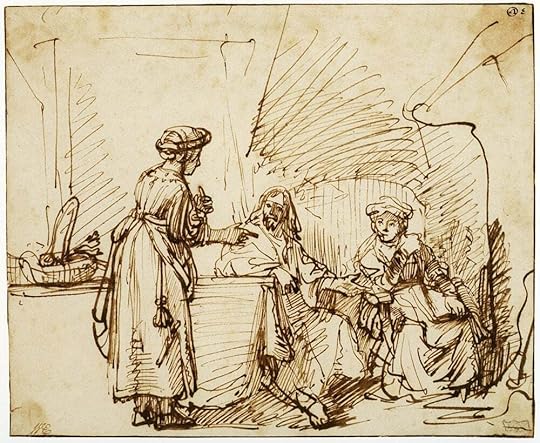 Christ in the House of Mary and Martha by Rembrandt, 1632
Why Mary Chose Better
Christ in the House of Mary and Martha by Rembrandt, 1632
Why Mary Chose Better
In the Gospel of Luke, we find Martha and Mary hosting Jesus.
Martha busies herself with the details of hospitality, striving to ensure everything is perfect for their guest. Meanwhile, Mary chooses to sit at Jesus’ feet, listening to Him. Soon Martha expresses her frustration that Mary is not helping with the preparations, Jesus gently reminds Martha that Mary has chosen that which is truly better.
In this moment, Martha’s preoccupation with the details of hosting—the equivalent of the committee’s fixation on the bike shed—prevented her from recognizing the ultimate importance of Jesus and the gift of His presence.
In Mary and Martha’s choice, we are confronted with the choice between busyness and presence. Jesus’ gentle rebuke of Martha is not a condemnation of her service but an invitation to realign her priorities, reminding us that true fulfillment is found not in the multitude of our readily available tasks but in our attentiveness to God’s voice.
To choose presence over productivity, to choose being over doing, to choose Jesus over everything else.
It’s not about eschewing responsibility or shunning the act of service; it’s about anchoring our souls in the presence of the One who calls us to Him. It’s about finding our worth not in the perfection of our efforts but in His perfect love for us.
So let’s pause, amidst the bike shed committee minutes of our lives, amidst the myriad details clamouring for our attention, and let us choose Jesus.
Let us choose the beauty of being over the frenzy of doing.
For in choosing to be present with Him, we choose the real yearning of our existence; communion with our Maker and Saviour.
– written by Caleb Voskamp
View this post on InstagramA post shared by Good News Movement (@goodnews_movement)
“What’s the kindest thing anyone has ever done for you?”
People sharing their stories from around the world!
#betheGIFT
On The Book Stack at The Farm

Read Ann White‘s recent guest post:
How God-Given Dreams Do Come True
 Out of the Silent Planet
(1938) by C. S. Lewis (1996 cover by Kinuko Craft)
Out of the Silent Planet
(1938) by C. S. Lewis (1996 cover by Kinuko Craft)Caleb and Melba have both been loving
listening to this CS Lewis written science fiction!
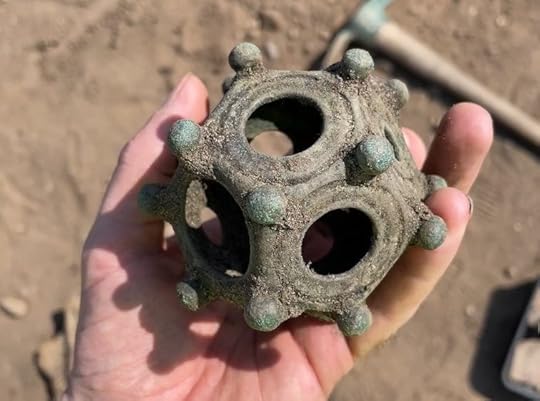
Your guess is as good as ours as to what this would have been used for…
It’s just so lovely– come along with us & breathe in beauty?

Aren’t these just the most adorable baby photos?
Just the bestest hospital tradition!
This Lent, Join Us In Keeping Company with Christ from the Cradle to the Cross: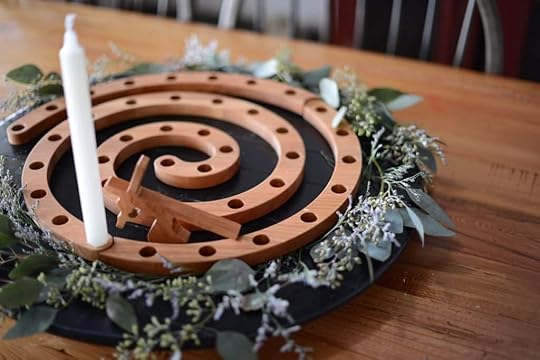 Cradle to Cross Wreath– This unique carved wooden advent and lent calendar spiral is an unforgettable family tradition this Easter
Cradle to Cross Wreath– This unique carved wooden advent and lent calendar spiral is an unforgettable family tradition this Easter

Ready for a gratitude journal with totally new way to embrace the power of intentional daily gratitude — in a way like you never have seen or known before?
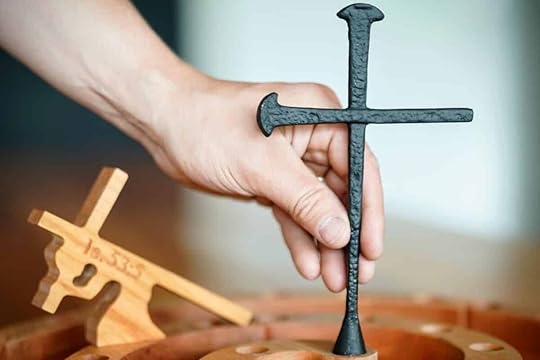
Black Nail Cross – Perfectly designed to fit within the central hole of your Cradle to Cross Lent Spiral
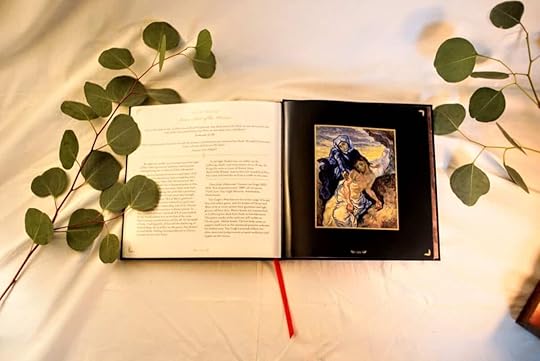 From the Cradle to the Cross – this Advent and Lent devotional was written to guide you and your family
From the Cradle to the Cross – this Advent and Lent devotional was written to guide you and your family day by day through a one of a kind experience of the holy days.
Written to accompany the Cradle to Cross wreath, but equally rewarding as a study on their own,
these devotionals combine two daily scripture readings
and a brief devotional with a name of Jesus and a relevant piece of classical artwork.
To pause and contemplate and celebrate
the wonder of Keeping Company with Him…
CLICK HERE: Whole Collection of Heirloom Pieces to Help you Keep Company with Jesus this LentSoul-truth for this weekend.
“There will be storms
That won’t move out of my way
And trials will come to only test my faith
Your mercy and Your grace
They go on forever and they’re sufficient for today”
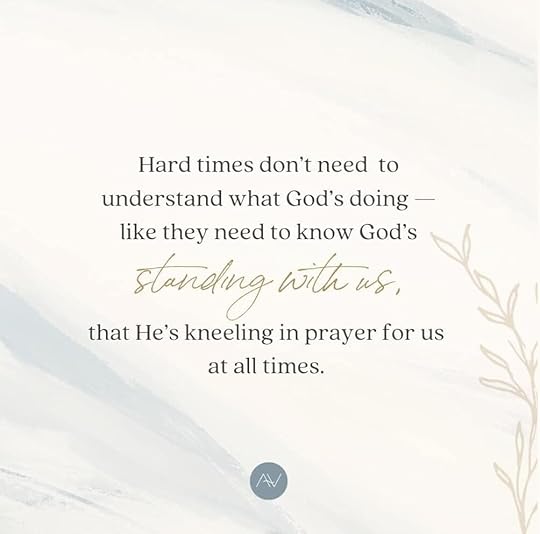
[from our Facebook community – join us?]
End of the week, and no matter what hard thing you’re facing or how much it feels like God doesn’t hear your prayers, this is what you need to know:
Jesus is praying for you. (John 17:6-9)
The One who breathes stars breathes prayers for you,
the One whose words spoke the world into being uses priceless words over your being,
the One who made time, lives beyond time, controls all of time,
uses all of His time to pray for you, because you are priceless to Him.
Your prayer warrior is more than any warrior —
He is the king of Kings and He has already won.
Jesus lives to endlessly, relentlessly and flawlessly pray for you (Hebrews 7:25),
and your prayer partner is the One who possesses all power,
and what He is praying for is your protection (John 17:11), your interconnection (11),
your God-satisfaction (13), and your always-sanctification. (17-19).
Jesus is praying for your holiness because He knows holiness is your ultimate happiness.
Jesus is praying that you’ll be set apart from what threatens to take part of your heart.
Because He knows: When you just want Him — then you always get just what you want.
Jesus is praying that you’ll be brave when you’re about to break,
that you’ll turn from what’s tempting, that you’ll stand against what’s strangling,
that you’ll escape into Him instead of trying to escape in a thousand unfulfilling ways.
Hard times don’t need to understand what God’s doing —
like they need to know God’s standing with us,
that He’s kneeling in prayer for us at all times.
Nothing makes you more fiercely brave than knowing Jesus is fiercely praying for you.
That’s all for this weekend, friends.
Go slow. Be God-struck. Grant grace. Live Truth.
Give Thanks. Love well. Re – joy, re- joy, ‘re- joys’ again
Share Whatever Is Good.
February 23, 2024
When You Ask: Where is the Light of God in This situation?
When pediatric nurse, Allyson Golden, experienced her hardest and darkest shift, she asked God, “Where was Your light in that situation?” Allyson learned that she wasn’t alone in asking that question, so she sought to study “light” in the Bible. As Allyson immersed herself in Scripture, she began to understand the transformative truth that we have no power to shine on our own, but the Light of the World shines through us—and no darkness can overcome it. It’s a joy to welcome Allyson to the farm’s table today…
Sensitive Content Note: Discussion of Mental Health & a Suicide Attempt
Guest Post by Allyson Golden
I will never forget that night.
Even though I was a trained pediatric nurse, nothing could have prepared me for what happened.
During my drive to the hospital that evening, I prayed that God would guide me as I worked. I had just hit my year-and-a-half mark, so I was a relatively new nurse. I prayed for a good patient assignment because, let’s be real, no nurse wants to have a hard shift.
I headed to the nurse’s station to check the whiteboard with the nurses’ names next to our assigned patients. Mine was next to a patient who had been on the unit for many months. Nurses can request to be assigned to long-term patients since continuity of care is nice for both nurse and patient. However, I hadn’t requested this patient and had taken care of him only once before. I noticed there were other nurses on duty who had requested this patient but had not been assigned to him, but I didn’t say anything.
Left unchecked, emotional stress can wear us down.
I went into each of my patients’ rooms, took their vitals, gave them their meds, discussed their care plan, and began to do my charting. The last on my rounds was the long-term patient. I knew he had endured difficult things. He was recovering physically but, unbeknownst to me, was still struggling emotionally.
Around eleven o’clock, his call light beeped. When I opened the door to his room, an eerie silence greeted me. The lights were off, and as I flipped the switch, I asked, “Can I get you anything? I saw you called the nurse’s station.”
I pulled the curtain back, and my heart leaped out of my chest as I realized that he had attempted to end his life and must have pushed the call button accidentally (or changed his mind) right before he passed out.
I yelled for help and checked to make sure he had a pulse. We initiated a code blue and continued to do everything to save him.
By the grace of God, he lived and was okay.




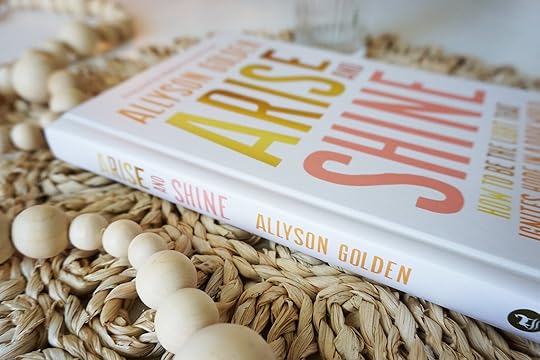

“Wherever God has you, He is with you. His light is within you. And He is so eager to shine through you like only He can.“
As everything calmed down, I walked out of his room and I lost it. I couldn’t get words to come, but the tears wouldn’t stop flowing. The charge nurse said I could go home, and my amazing co-workers took over my patients.
As I began to process everything, I couldn’t help but question: Why would this patient want to end his life? Why is there so much darkness in the world? And why was I assigned as his nurse that night, of all nights? Why me, God?
Unfortunately, this near disaster was not an isolated situation. Frontline workers and nurses see tragedy daily. Left unchecked, emotional stress can wear us down.
I long to be a person who brings hope to others. I want to be full of joy and a bright shining light for Jesus. But some days it feels too hard to see through the dark circumstances. I wish it was easier and that darkness didn’t exist. I long for the day when there will be no more darkness.
I bet you’ve had difficult situations where you questioned God’s purpose. But, He isn’t placing those things in your life to tear you down. Rather, He wants you to fulfill your purpose by being a vessel of His light to this very dark world. Wherever God has you, He is with you. His light is within you. And He is so eager to shine through you like only He can.
“We can choose to let the darkness control us or take control of it ourselves with God’s help.“
Maybe you’re thinking you aren’t strong enough, bold enough, or capable enough to carry His light. But, my friend, you are. In fact, He has chosen you specifically to be a light in dark places and in hard spaces where no one else wants to go—where, at times, you might not want to go either.
Darkness has a way of telling us we are stuck. It wants us to feel like it controls us; but it doesn’t. We can choose to let the darkness control us or take control of it ourselves with God’s help. The Enemy wants us to believe the lie that there can’t be light amid darkness. Satan doesn’t want us to have the hope that Jesus brings us.






Now, three years later, I keep returning to the ways the light of God’s hope and comfort meets us in every dark and painful room in our lives, in rooms and places that make our hearts break.
“In the presence of the Lord, absolutely no darkness can overcome His light. “
John 1:4–5 says, “In Him was life, and that life was the light of all mankind. The light shines in the darkness, and the darkness has not overcome it.” In other words, Jesus is the light of the world. We may feel overwhelmed by darkness, but it will never overcome us because Jesus’s light is in us and around us.
I have learned that light shines the brightest in hard situations.
Without darkness, we wouldn’t know what light is. It is in darkness that light contrasts the most and shines brighter than ever. There may be darkness in this world, but light breaks through to shatter it.
In the darkest rooms, the comforting light of God’s presence wraps every up every tender heart. Even in the darkest stories, because of the very real presence of the Lord, absolutely no darkness can overcome His light.
And His light is fully within those who believe in Him and who are focused on all of who He is.
Even in the darkest of situations.
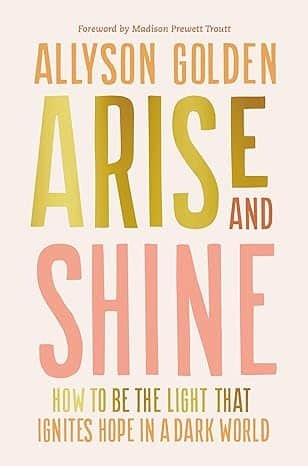
Allyson Golden is a pediatric nurse and creator of the online ministry Words Are Golden, where she champions women in their faith.
She is currently enrolled in seminary to obtain her Master of Biblical and Theological studies degree. Allyson and her husband, Michael, partner in ministry at their local church in San Diego. Allyson loves to host people in her home, travel to see new places, and go on walks with her dog, Charlie.
Allyson’s new book, Arise and Shine, reminds us that we have no power to shine on our own, but the Light of the World shines through us—and no darkness can overcome it.
{ Our humble thanks to Waterbrook for thier partnership in today’s devotional.}
February 21, 2024
A Lent to Reflect: Part 1: How the Practice of Looking Back Changes Where You Are Going To (With Video)
In the days after Ash Wednesday & reflecting on how we are all dust, & to dust we shall return, I keep walking gingerly across our farm house’s century-old planks floors, with the finish wearing down after decades of raising more than half a dozen kids here, and I keep feeling my stitches & my own mortality & all this passage of time.
The soul needs a practice of reflection so it can see the Way forward.
Maybe an honest journey through Lent is always a pilgrimage of reflection – reflecting on where you’ve been, and all the wildernesses you have weathered, while reflecting on where you’re going and where the Way Himself is taking you, as you keep practicing the cruciform way of the Way Himself.
The only way to see the way forward, is to have a spiritual practice of reflecting back.


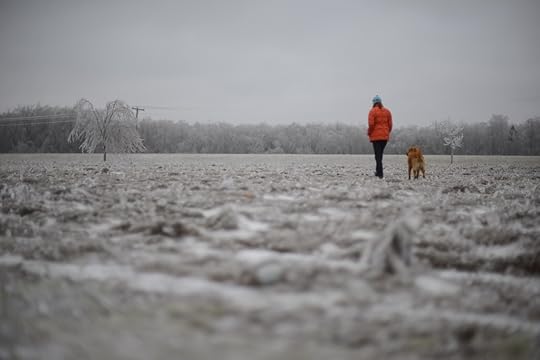
Without the practice of spiritual reflection, there isn’t any self-awareness.
Too often we can’t learn from the moments of our day; rather we can learn if we have a practice of reflecting on our day, for several moments every day.
Without reflection, you can end up doing things you’ve always done, while expecting things to be different. Too often we don’t learn from the moments of our day; rather we only learn if we have a practice of reflecting on our day for several moments every day.
Without reflection, the soul lacks education.
Spiritual reflection is required for spiritual maturation.
I wrote it in the front of my journal this year: Your souls needs a practice of reflection if you want to see the Way forward.
It’s true: It takes courage to take time for reflection, because loud actions look more effective than quiet reflection, when the reality is what Peter Ducker says, “Follow effective action with quiet reflection. From the quiet reflection, will come even more effective action.”
Spiritual reflection is required for spiritual maturation.
One of the most profound questions of spiritual reflection that reverberates and resonates for each of us on our own spiritual pilgrimages is the very question God Himself asks Hagar out in her own wilderness: “Where are you coming from and where are you going to?”
What my work toward my Masters at Wheaton, all the vulnerable studying at The Healing Trauma Institute, the year of course work at The Allender Center in Narrative Trauma Care, and my current studying toward a doctorate at Biola University in spiritual formation and soul care, have all been part of teaching me:
The practice of reflection is key to practicing soul growth. The practice of reflection is key to practicing being cruciform. The practice of reflection is key to practicing repentance. The practice of reflection is key to practicing thankfulness.
The practice of reflection is key to the practice of faith.



As I have been writing daily in my SACRED Way journal for the last several years, that’s the same question I again write this week across the top of a page in my journal, as I prepare to leave to serve the 10th anniversary of IF:Gathering, as this year marks more than 20 years of personally blogging here and journaling my spiritual journey.
“Where am I coming from? Where have we been? What roads and wildernesses have we come through?”
Without reflection, the soul lacks education.
This practice of spiritual reflection can give you eyes to see how you’ve come through the most unexpected wildernesses:
-> Your little kids have grown up and into adults, and into stories of their own, different than yours, with different boundaries that deserve respect and all the grace you’ve ever known.
-> You got real things wrong. You limp hard, heart aching, and end up again on your face at the foot of the Cross. You’re refined, sanctified, changed.
-> You lose people you love traumatically. You lose hope, or plans, or joy. You have to figure out ways to navigate, with extravagant grace and unwavering truth and real faith. You have to stagger through the losses that rip through your family, that gets processed in all kinds of different ways.
Without reflection, you can end up doing things you’ve always done, while expecting things to be different.
-> And what you can do is get yourself into cruciform covenant community, get yourself down on your knees and into a teachable space of learning and growing, and you can do the very tender work of healing and growth, because: If you don’t do the work of processing your trauma, you’ll be a source of trauma that someone else will have to work through.
Running the ink of my pen across across pages of my journal, part of this spiritual pilgrimage of a Lent of reflection, I realize I’m still personally experiencing that truth that I quoted of John Piper’s back in One Thousand Gifts: “I know not how the light is shed, nor understand this lens. I only know that there are eyes, in pencils and in pens.”
This is part of the life-long spiritual pilgrimage: Pen and paper and prose can be a way to process pain.
This has been the work of my life.


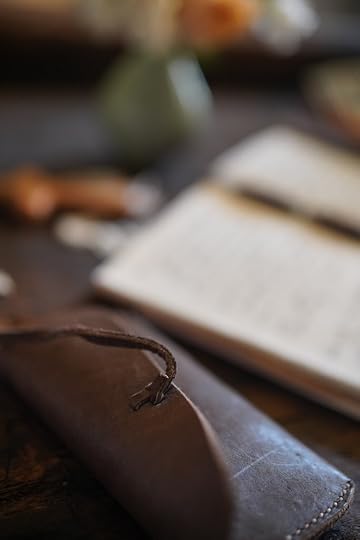
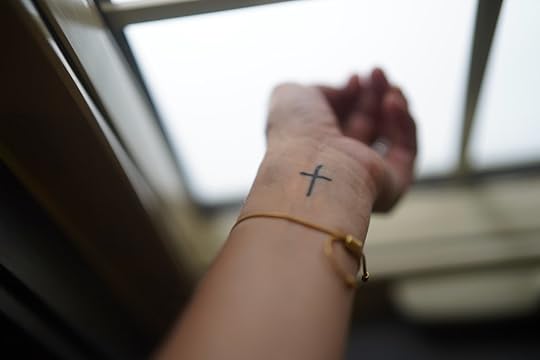
Though the plan was to quietly raise a bunch of farm kids, to be a farmer’s wife alongside my Dutch Farmer, right here in the same farming community he and I were both were born and raised in…. though I never planned to write books, never wrote an initial book proposal or sought out any agent but was rather just discovered processing all the parts of my life through writing and blogging in a quiet corner of the internet without any comments at all or any social media, discovered by an agent who reached out, asking about taking my story to the pages of a book …. the Word Himself always writes the story in profoundly unexpected ways, yet still always calls us all to the same thing: to lay down our lives on an altar of vulnerability and humility and cruciformity and live a life of givenness.
Wherever you’ve come from, you get to come pick up a cross and live given, extending like the arms of a cross, out into the world.
The call isn’t ever to what’s easy, but to keep easing into a deeper trust of God.
Looking back, yes, whatever came from the first several years from that first book, One Thousand Gifts, was completely given away, partnering with Compassion International to build a school and care center for the children living at the Guatemala City Dump — because those were the words I’d written on the pages of One Thousand Gifts, and keep sincerely praying every day for a way to live: “Christian hands never clasp, and He doesn’t give gifts for gain, because a gift can never stop being a gift—it is always meant to be given.”
Looking back, what was entirely unexpected was how, in the midst of family farming, and trying, in all our broken humanity, to do what should be done with every platform, make it into an altar to be formed cruciform, to live given – God miraculously led to hands-on restore an old church here in town, to be part of a restoration story, not just of an old building, but of all of our tender stories, a place of givenness, a place called The Village Table.
This was not easy, but looking back, you can see that the call isn’t ever to what’s easy, but to keep easing into a deeper trust of God.
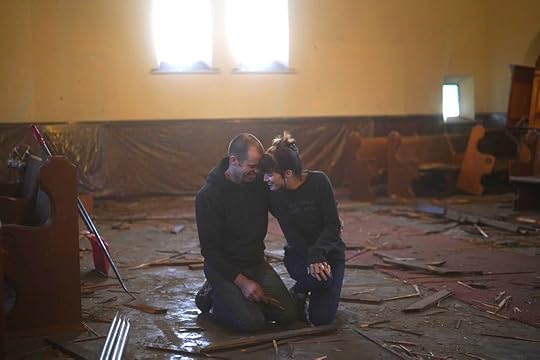

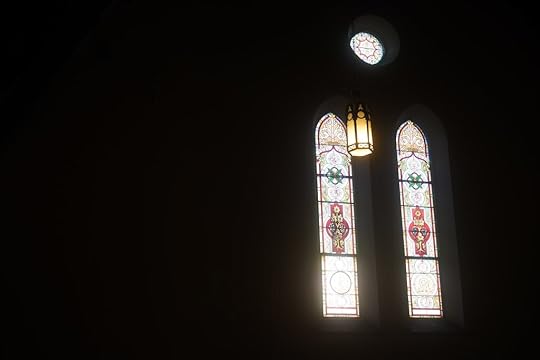
Believing in restoration and redemption and rebuilding, what if the dare was to dream and get to work:
What if there was a way to cast a vision of church with fewer pews and platforms, to give more people belonging around tables?
That highschool sweetheart I married, that hardworking farm boy who’d never opt to go on a vacation ever because his favorite place in the world is just here taking care of his mama sows, tending crops, keeping dirt under his fingernails as he works this earth – he led us with his hardworking work ethic into that vision of a church restoration… that was part of restoring the tender parts of us.
The spiritual practice of reflection lets you see not only the parts of the story that you’d do anything to change – but how God used some of the hardest parts of the story to change you.
Leading us into cultivating a family culture of grace and mercy, of not living under shame, but of living under the saving grace of Christ, the Farmer led us to restore that old church into a space filled with tables, a space filled with this hopeful vision: to be a place where the whole community could gather around tables, could gather together, across denominations, with different faith-communities, churches sharing the leading of community-wide worship nights – to be a church of churches.
And after a year of late-night renovations The Village Table became a place too, partnering with the leadership of the Salvation Army and the United Way, to be a safe shelter to serve the vulnerably housed in our community with free shower facilities, free laundry and dryer facilities, and a place to sit around tables for free light meals 4 days a week.
Reflecting back, you can see not only the parts of the story that you’d do anything to change – but how God used some of the hardest parts of the story to change you.
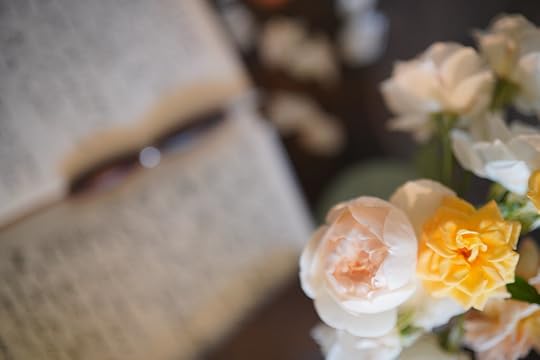
No matter what has not gone as was once hoped: Reflecting back shows you how to imagine the possibility of a better future.
No matter if you’re not sure what comes next: Reflection is how you see the next best action.
No matter where you’re coming from or where you’re going to: An honest reflection of the past is the way you see a holy redemption of the future.
As the theologian Kierkegaard urged, “Life can only be understood backwards; but it must be lived forwards.
Look backward to understand, to understand patterns and dynamics and wounds and failures and still, always, the goodness of God ––and then stand with hope as you live forward, forward into cruciformity and possibility and grace and new ways of being and restoration and redemption and the rising of everything on His healing wings.
In the days after Ash Wednesday, here in the dust of a worn farmhouse, here with a reflecting pen in these early days of Lent, I keep think of how phoenixes can rise from the dust of ashes.
How out of all kinds of dust and ashes, bricks can still be built, and hope can still bravely rise, and how there’s always a way to choose to be one of the Nehemiahs, the ones who reflect and restore and rebuild, steadily and faithfully working with the One who resurrects.
A Lent to Reflect :one of the Most Miraculous Faith Stories our Family Has KnownWATCH: A Way Through to a Life of Meaningfulness Two Related Stories: The Toronto’s Star article on The Village Table reaching out to our friends who are vulnerably housedand this story: Maybe One of the Craziest Things We’ve Ever Done and I’m Kinda Terrified Tune In for What’s Upcoming in this Series during Lent:
A Lent to Reflect: Part 2: Some of What I Wish I Had Done Differently As a Mom & How to Work Toward Restoration
A Lent to Reflect: Part 3: Even in the face of Regrets: How to Practice Hope and Growth
A Lent to Reflect: Part 4: How to Practically Learn the Art of the Spiritual Practice of Reflection to Experience Soul Transformation
February 19, 2024
How God-Given Dreams Do Come True
God gives each of us dreams and callings that encourage us to see beyond our current circumstances and focus on the possibilities for the future. Unfortunately, many of us abandon our dreams and aspirations due to doubt and fear. If we would only set aside our hesitations and courageously embrace our God-given calling—imagine the combined impact we could have on the faith and future of God’s people.
Ann White is an internationally known author, speaker, TV host, passionate Bible teacher, founder and CEO of Courage For Life, wife, mother, and grandmother and Ann believes God offers everyone an abundant life but that it is up to us to take hold of that promise. A humble grace to welcome Ann to the farm’s front porch today….
Guest Post by Ann White
Ten years ago, I was sitting on my front steps, telling a friend, “I believe God is calling me into full-time ministry, but I’m just not sure what it’s supposed to look like—or how I should proceed.”
“You are in ministry,” my friend responded. “You teach weekly Bible Studies, go on mission trips, and minister to people both at church and in the community.”
Yet, I sensed there was something more God wanted me to do. Something that involved starting a nonprofit.



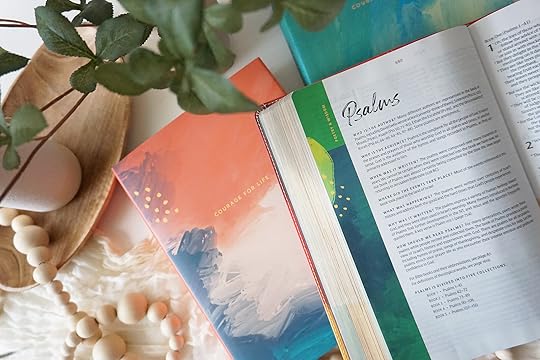




I knew the ministry would be grounded in the study of God’s Word and would involve discipleship, because these two spiritual disciplines had brought undeniable transformation to my own life, but other details and specifics eluded me. I wanted the full plan laid in front of me, but all I got was an uncomfortable nudge from the Holy Spirit.
“It is only with God’s help that we break down those barriers of what came before to look forward with hope to what lies ahead.“
There were so many unknowns.
I was lost trying to figure out the details. In the whirlwind of my thoughts, I realized I was trying to lead this. I was trying to control this call. I needed to get me out of the way. And then I read:
“So we keep on praying for you, asking our God to enable you to live a life worthy of His call. May he give you the power to accomplish all the good things your faith prompts you to do. Then the name of our Lord Jesus will be honored because of the way you live, and you will be honored along with him. This is all made possible because of the grace of our God and Lord, Jesus Christ.” 2 Thessalonians 1:11-12, NLT
I followed Paul’s advice. I meditated on Scripture and prayed for God’s wisdom and guidance. Still, I couldn’t shake the feeling of unrest. God was not letting my feeling of inadequacy stop his big plans. He was pushing me forward. Finally, I surrendered my doubts and fears, embraced my God-given courage, and began my journey of starting a nonprofit ministry.
There were still many bumps in the road. I often couldn’t see God’s big picture, but I took His hand as we traveled together. Like Abraham when God said, “Leave your native country, your relatives, and your father’s family, and go to the land that I will show you” (Genesis 12:1), I chose to let go of the controls and trust God with my venture. I believed He would fill in the details along the way. And He did so much more than that. He guided men ways I never could’ve seen.
“If we let Him, God can use the most broken moments of our lives to bring beauty to others. “
Continually, I have to offer my fears and doubts to God and accept His courage for the plans He has for me. So much of my journey includes overcoming past pain, discouragement, and dysfunction. It is only with God’s help that we break down those barriers of what came before to look forward with hope to what lies ahead.
If we let Him, God can use the most broken moments of our lives to bring beauty to others. God opened my eyes to what I had to share and how I could help others draw closer to Him, especially through pain and disillusionment. God was pushing me once again to step out of my comfort zone. He wanted me to share my story so others could discover true courage rooted in Him.
While writing a book, God revealed seven practical steps that helped me pursue a more courageous life. These seven steps are a foundational discipline and primary teaching component in my ministry—Courage For Life.

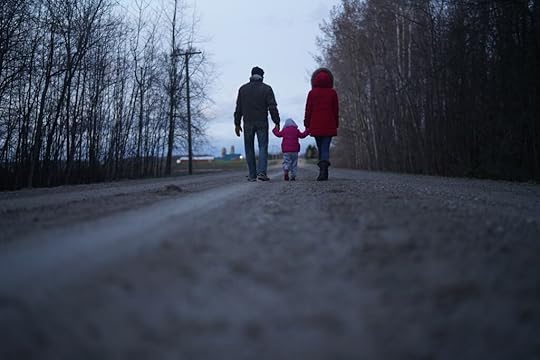
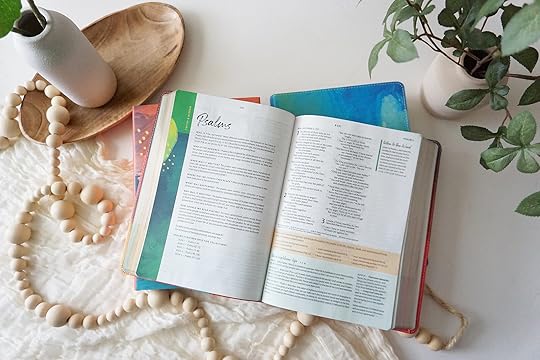




The Seven Steps to Courage (below) are grounded in life-changing biblical principles.
C — Commit to Change
O — Overcome Obstacles
U — Uncover Your True Self
R — Replace Worldly Lies with Scriptural Truth
A — Accept the Things You Cannot Change
G — Grasp God’s Love for You
E — Embrace a Life of Grace
These steps also transformed my life. They drew me closer to God and inspired me to become more courageous in my faith.
When I began teaching these steps to others, I rejoiced as they, too, received spiritual and emotional transformation. And the blessings continued as the steps were passed on and on and lives were being healed through God’s path to hope and courage.
“Courage takes many forms, but true and lasting courage is found only when we are rooted in God’s Word.“
Soon, God began opening doors into the prison system and inspired me to begin creating additional resources to support the spiritual growth and emotional health of broken women and men.
When I first felt God’s uncomfortable nudge to follow him, I could never have dreamed or imagined all God would do in and through the Courage For Life ministry. Courage takes many forms, but true and lasting courage is found only when we are rooted in God’s Word.
Because I said yes to God and finally set aside my insecurities and doubts, I not only get to see God’s work in my life but also in the lives of so many others. When we surrender our fears to him and replace them with His courage, He truly does things we could never imagine.
For me, this included helping to create study Bibles for women and men that offer a discipleship pathway to transformation. We are surrounded by so many conflicting voices that distract us from the truth of who we are in Christ. My prayer is that through God’s Word, we can filter out the noise so we can discern and bask in God’s beautiful truth and plans for our lives.
Along with Paul I say,
“Now all glory to God, who is able, through his mighty power at work within us, to accomplish infinitely more than we might ask or think.” Ephesians 3:20, NLT
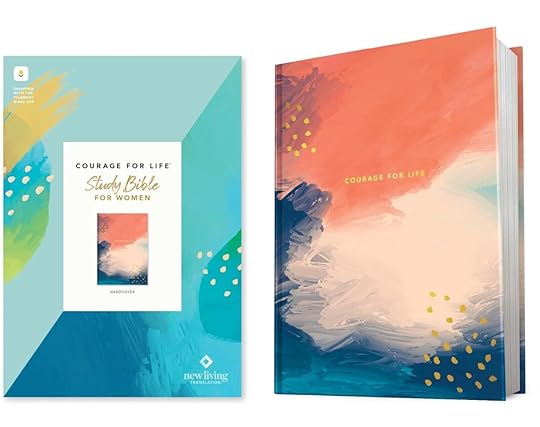
Ann has a passion for women and men to embrace their God-given courage for life and to be inspired to make adventurous and courageous choices that prepare them to experience the life God intended for them. She is the general editor of both the Courage For Life Study Bible for Women and the Courage For Life Study Bible for Men.
These Bibles feature eighty-two profiles of Courageous Women or Men of Faith, whose stories inspire you to say yes to God so that you, too, can experience a more courageous and purpose-filled life. These study Bibles also include section and book introductions, Listen to the Word statements, and 1,464 inductive Bible studies that provide practical guidance to help you pray, observe, interpret, and apply (P-O-I-A) God’s Word to your everyday life!
In addition, you will have access to the Courage For Life fully female-voiced audio Bible and over 27,000 additional study notes and resources through the Filament Bible app.
Recently, Ann released the Courage For Life Study Bible for Women and the Courage For Life Study Bible for Men in partnership with Tyndale House Publishers.
In these Bibles, you will discover easy to understand, applicable, and inspiring extrabiblical content that will help you grow in your relationship with God and His Word. And it’s these relationships, above all others, that equip you to live a more courageous, confident, and faith-filled life.
February 16, 2024
When Your Body is carrying the Trauma of a Hard Story…
A journalist and mom of three, Whitney lived under the shadow of her mother’s cancer diagnosis for much of her childhood and into her adult years. But it wasn’t until cancer took her mother’s life twenty years later that Whitney began to understand: this valley of the shadow of death was always meant to teach us how to live. In this excerpt from her new book, she writes about how facing death changes our perspective on the bodies we inhabit for now. A humble grace to welcome Whitney to the farm’s front porch today…
Guest Post by Whitney Pipkin
I may not remember many of the ancestry facts Mom dredged up in her later years, but I remember her skin. It is a map in my mind telling the story of her life as it evolved over time.
Later, it was the first part of her body to bear the marks of cancer treatment. I remember one chemotherapy drug that took a particular toll on the flesh of her hands and feet.
This medicine somehow managed to spare the hair, leaving her blonde bob intact for a time, while pooling instead at the end of her extremities. There, it wreaked havoc on the quickly-dividing skin cells, turning her palms puffy, raw, and red. They peeled so badly that the lifelong banker joked about robbing a few financial institutions now that her fingerprints had nearly disappeared.
Our bodies often tell us stories we’d rather not hear.
This was especially true of my mom, who endured more than most bodies can handle during countless clinical trials (“a real guinea pig,” she’d say). It wasn’t until I read her cancer notebook after she died that I realized how constantly she played whac-a-mole with bodily symptoms, beating back one only to be waylaid by another.

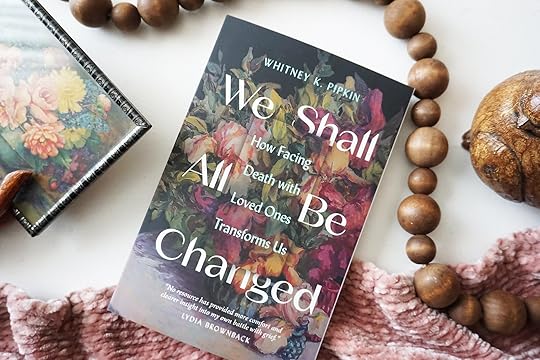


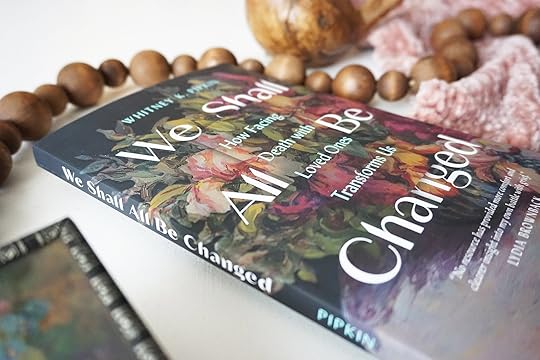

What hope is there for those who endure like this, I wonder now, in bodies that once flourished but now falter and suffer?
Our bodies carry in them reminders that we will not live forever. This is as true of those who have been given a terminal diagnosis as it is of those who have not. The skin that dimples fresh and dewy around a toddler’s chubby knuckles eventually flattens and freckles. In old age, it grows thin and papery, like tissue paper that barely conceals the blue veins still pumping beneath the surface.
“In our bodies, then, we carry all the beautiful and terrible tensions of the gospel.“
The Bible, unlike the advertising industry, does not shy away from this reality. It compares our bodies to pop-up tents and to jars of clay—the reusable Tupperware equivalents of the ancient world. Scripture says we inhabit “bodies of death” that are weak and perishable. Yet, illogically, our bodies are also called “[temples] of the Holy Spirit” (1 Cor. 6:19) and “fearfully and wonderfully made,” knit together by a careful Creator in our mothers’ wombs (Ps. 139:14).
In our bodies, then, we carry all the beautiful and terrible tensions of the gospel. Remembering this gives us categories for the painful parts of being embodied—and lends us a greater vision for their redemption.
The first body was formed when God breathed life into dust, making humans the climax of a creation that He called “very good.” Then the fall ushered frustration, futility, and death into every aspect of that creation, including our bodies and the work they were made to do.
When our frames are fading and frail, this is the part of the story they tell: “For you are dust, and to dust you shall return.”
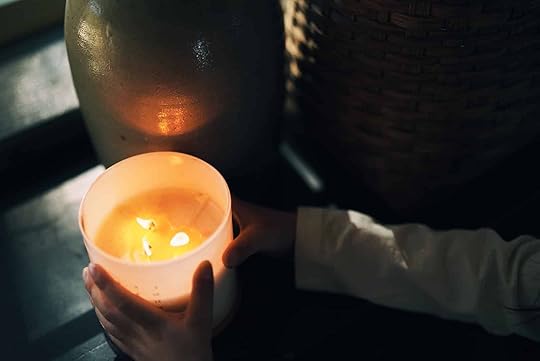
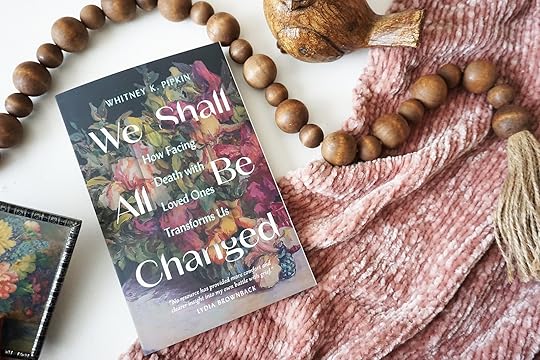

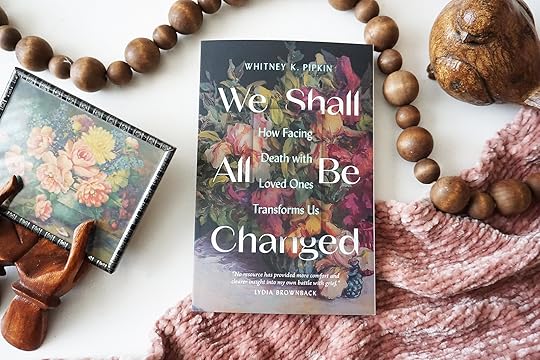
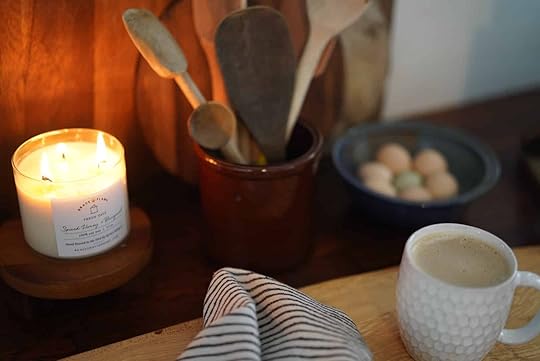
It’s a story that could end there. But it didn’t.
When the fullness of time had come, the story burst into living color. “The Word became flesh and dwelt among us” (John 1:14). The very God through whom all things were made robed Himself in frail humanity. The One who made us in God’s image, imago Dei, took on a nature like ours to become God with us, Immanuel.
“The very God through whom all things were made robed Himself in frail humanity. The One who made us in God’s image, imago Dei, took on a nature like ours to become God with us, Immanuel.“
Our God took on a body.
Jesus Christ grew from infancy to manhood in a temporary tent like yours and mine. He who said “If I were hungry, I would not tell you, for the world and its fullness are mine” (Ps. 50:12) submitted Himself to basic bodily needs for food, clothing, and rest. Being embodied allowed Jesus to be “tempted as we are, yet without sin” (Heb. 4:15). Living the perfect life, which only He could do, made His body the spotless sacrifice for the sins of us all.
In this way, Christ’s embodiment lights the way for the redemption of our own: You whose body has been broken by the sins of others, you who suffer from chronic illness, you who struggle to receive the wrinkles and the wear-and-tear, “fix [y]our eyes on Jesus, the author and perfector of our faith, who for the joy set before Him endured the cross, scorning its shame, and sat down at the right hand of the throne of God” (Heb. 12:2 BSB). ***
What ailment befalls you?
What would change if you could lift your eyes not to a God who stands far off but to a Savior who stooped to suffer?
“Just as we have borne the image of the man of dust,” 1 Corinthians 15 tells us, “we shall also bear the image of the man of heaven” (v. 49).
The Savior whose return we await “will transform our lowly body to be like his glorious body, by the power that enables him even to subject all things to himself” (Phil. 3:21).
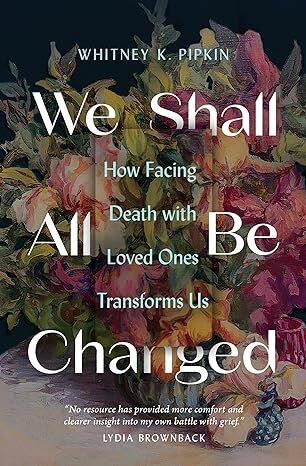
Whitney K. Pipkin lives with her husband, three children and a dog named Honeybun in Northern Virginia, where they are longtime members of Grace Bible Church in Lorton. She works as a journalist.
After losing her mom to the cancer she wrestled with for 20 years, Whitney has written We Shall All Be Changed: How Facing Death with Loved Ones Transforms Us a book she prays will serve others walking similar roads. You can find her on Instagram @whitneykpipkin and sign up for her newsletter at whitneykpipkin.com.
{Our humble thanks to Moody for their partnership in today’s devotional.}
*** “Body of death” (Rom. 7:24), “weak” (Matt. 26:41), “perishable” (1 Cor. 15:53). “For the creation was subjected to futility, not willingly, but because of him who subjected it, in hope that the creation itself will be set free from its bondage to corruption” (Rom. 8:20–21). See Genesis chapters 2 and 3. Quote from Genesis 3:19. “But when the fullness of time had come, God sent forth his Son, born of woman, born under the law, to redeem those who were under the law, so that we might receive adoption as sons” (Gal. 4:4–5). “Robed in frail humanity” phrase from Matt Papa, Matt Boswell, Michael Bleecker in the hymn, “Come Behold the Wondrous Mystery” (Love Your Enemies Publishing, 2013).
February 13, 2024
About My Surgery & What is a Woman & How Do You Navigate Issues Around Finding Your Identity?
I wouldn’t know until afterward, when I came to in the recovery room, that the projected hour long surgery had ended up morphing into 3.
Humbly realize you can always end up being the unexpected anomaly. Unlikely odds can like coming after you as well as anyone else.
All I know is that just before, while I wait in my flimsy hospital gown under a thin sheet in pre-op on the last Friday in January, I am laughing and small-talking with the Farmer holding my hand, trying to distract from remembering what had happened last time.
Because the last time I’d rolled under the blinding white lights of the operating theatre for what was blithely billed as a 20 minute standard procedure, a uterine ablation — had kinda wildly ended up leaving me hacking up a lung because of unexpected double pneumonia due to the fact that, even more wildly, I had unexpectedly ended up in heart failure.
So, suffice to say, I’m feeling none too confident about rolling in under any knife again, but this is what I’m pretty sure of: Humbly realize you can always end up being the unexpected anomaly. Unlikely odds can like coming after you as well as anyone else.

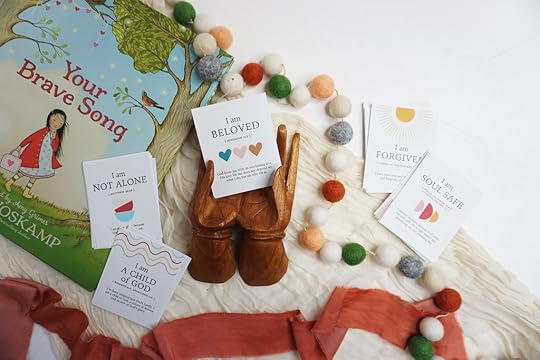


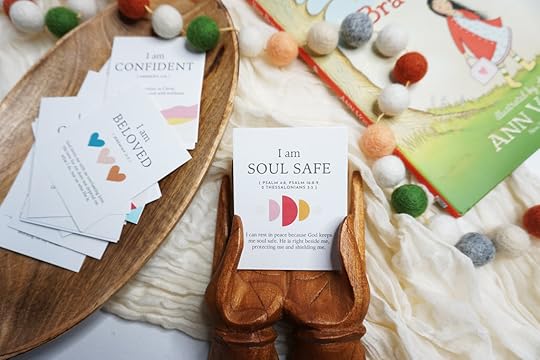
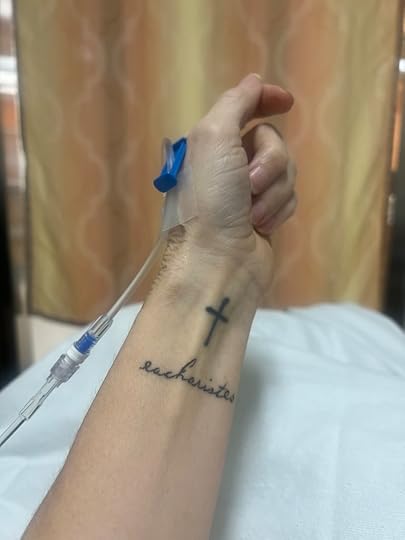
But just as I’m responding to a kind friend’s inquiring text asking how I’m feeling about the clock counting down to rolling me into the OR — another text pops up. With a photo.
From our dear daughter-in-law, her and Shiloh standing outside right then, both smiling a mile wide on a late January afternoon up here in our great white north — after they had snapped a picture of an unexpected full rainbow arching right over their heads.
And I exhale with the unexpected grace of it all:
Expect the promises of God to hold you secure no matter the unexpected problems.
Expect the promises of God to hold you secure no matter the unexpected problems.
After the Farmer kisses my forehead goodbye, after I sign the final consents and am rolled in under the lights, I hear the anesthesiologist ask the surgeon what the chances are that the surgery will be laparoscopic and the surgeon says about a 50/50….and then the mask goes over my face.
And the memory of singing those words to our crying little girl as she went under … comforts me as I go under.
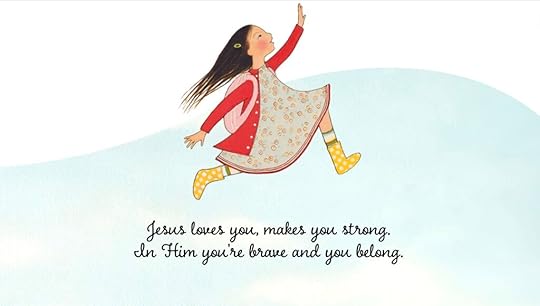

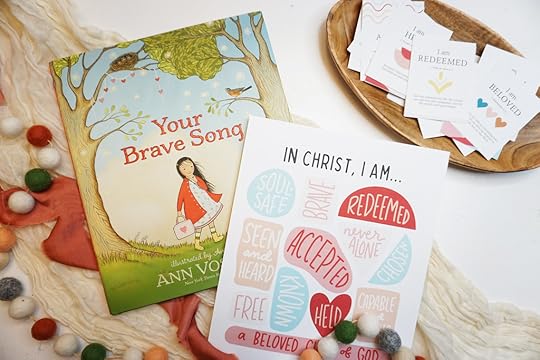
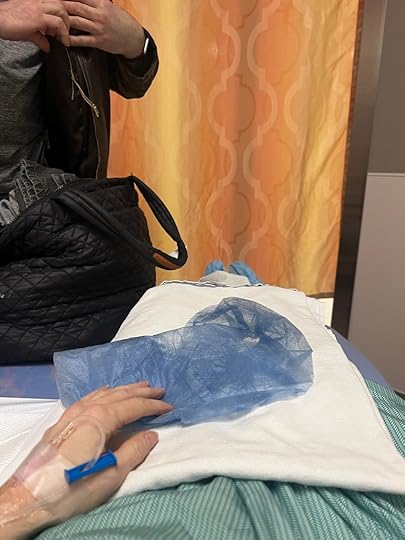
When I come to in the recovery nearly 4 hrs later, my teeth are chattering with the expected post-anaesthetic hypothermia, all I can see everywhere – hilariously, but maybe to be expected from one ridiculous amateur shepherdess -– is sheep, sheep and more sheep.
And all I want is more and more blankets, and after decades of complicated issues that I’d tried to keep navigating – the organ that had arguably most changed my life – my uterus – is gone.
I’m not exactly sure how I expected to feel after losing an organ…. after losing this organ.
Identity is neither forged, fabricated, forfeited, nor forced out of a body, or forced upon a body – identity is favor received.
I hadn’t expected to feel much of anything, honestly – I hadn’t wanted to discuss it,or share it, or even really acknowledge it, a whole undertaking that I finally just had to acquiesce to after I had run out of options. And honestly, marking this milestone in any way feels deeply complicated.
Women have a myriad of complicated perspectives and relationships with their uteruses, society has a myriad of perspectives and contentious views around uteruses, and I personally had my own tender conflicting relationship around my own.
And maybe — uteruses are not discussed in polite company. Maybe the medical state of a reproductive organ isn’t a conversation that should be reproduced outside of a doctor’s office — and yet, a uterus is no small thing in this very real thing of identifying what it means to be a woman. And ultimately, it matters to me, to be a woman, to see women the way Jesus sees women, to never be part of the erasure of women, to speak the profound value of being a woman.
And yes, it’s deeply tender and nuanced and complicated, and that female process around production of eggs and gestation of humans is broken and fraught with all kinds of shattering heartbreak in a broken world — and, at the same time, it still is true that a uterus plays no small part when it comes to what it means to be woman, “one who is an adult human being who, at birth, was believed to have the ability to get pregnant after puberty.”
While it felt like my uterus had betrayed us and failed to carry one of our babies, while it has haemorrhaged for decades too long, while it has been the catalyst that had tipped me over into a dangerous anemia, that led to a heart murmur, that then, through a cascading series of events, into literal heart failure – my uterus too has been the first home for six of our children.
How could I not feel something — even if unexpected — when I lost it?
I reflected on it again, that first night in the hospital after the removal of my uterus: It’s the heart that pulses blood through the female body. And it’s the uterus that’s made to release blood from the female body. The chambers of a heart beats with life. And every new life had its first home within the chambers of a uterus.
In all kinds of ways: A uterus is the shadow of a woman’s heart.
And in all kinds of ways: A broken uterus can break a woman’s tender heart.
The doctor comes in the next morning to check on me, explains the complications that unexpectedly extended the surgery, and what had to be removed and why. He outlines how long for bed rest, what the 6-8 week recovery process entails, what has to heal and how long that takes.
When I’m home, slowly recuperating, when I’m up through the nights, I think of all the people battling deep pain that can’t be cut away or removed, babies and tender mamas fighting for real relief in all kinds of ways, all those who can’t find sleep for tender loss and scarring grief and stories with so many question marks, and every weary one who faces each new sunrise with no real cure. And this is a holy, unexpected gift to enter even a bit more into the sufferings of the world, and of Jesus, who comes to suffer with us in this world.
To love is to suffer — and to personally suffer deeply, is to love others far more deeply.
As Jürgen Moltmann writes, “…when we feel pain we participate in [God’s] pain, and when we grieve we share his grief… People who believe in the God who suffers with us, recognize their suffering in God… and God in their suffering” …. and God in all the suffering of the world.
When our suffering unexpectedly opens the door wider for us to enter in and more deeply identify with the sufferings of Christ, we end up identifying more with every one who’s suffering and hurting and holding all kinds of unspoken broken.
To love is to suffer — and to personally suffer deeply, is to love others far more deeply.
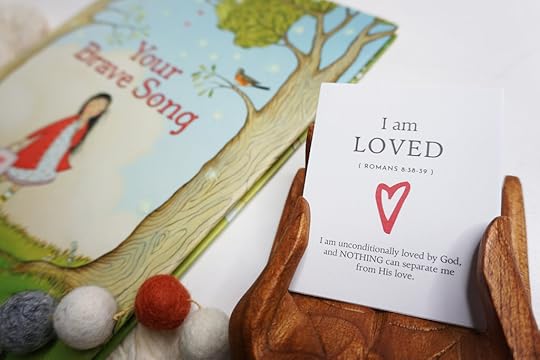
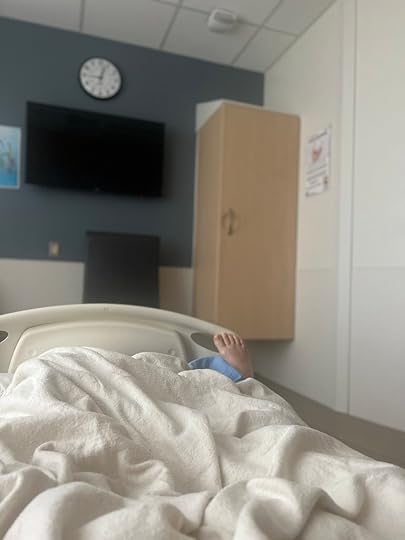
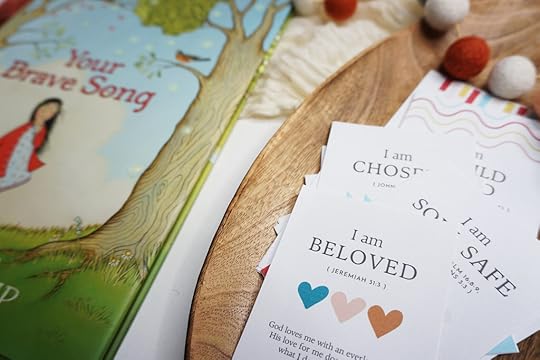
The first 5 days post-op are a bit rough.
When I can manage to focus while laying there in bed, I reach for my books that are part of the required reading list for my doctorate of ministry in spiritual formation and soul care program that I’ve just begun at Biola University, because as long as we’re still breathing, we’re made to still be growing…
I read with a pen, marking what’s stretching and expanding me, and, in my recuperating from removing an organ that tenderly part of my identity as a woman, I stop at this unexpected line in this doctoral read about spiritual growth:
“My colleague, Calvin Turley used to say that pathology was either was the result of, or a case of, mistaken identity.”
Which is to say: Our most vexing problems are a function of mistaken identity.
Our most vexing problems are a function of mistaken identity.
I lay the book aside, but I think about this for days:
What is identity and how is mistaken identity a function of clear pathology? Do we risk a case of mistaken identity when our fallible minds try to create our own identities? What has made my identity as a woman, and who am I when a vital part – an actual organ – that has shaped and formed my identity, has been removed because of a pathology of its own?
It’s sometime after day 8 post-op, when I tenderly start moving more around the house, when migrate from our bed and more to the couch and my stack of course readings, that I underline words on the page that the theologian Merton wrote: “Our true self is a received self…. We are fulfilled by an identity that is… received.”
These words are a gift.
I receive.
Identity is given, not generated. Identity is embraced, not earned.
Identity is neither forged, fabricated, forfeited, nor forced out of a body, or forced upon a body – identity is favor received.
I can still hear how Timothy Keller would profoundly say: “Your identity is received, not achieved.
Identity is given, not generated. Identity is embraced, not earned.
Identity is one inheritance that can’t be lost. It is only by losing ourself in the truly expansive love of God, that we find our truest identity. Only genuine intimacy with God can give us genuine identity in life. Intimately knowing who we are – only happens when we intimately know God.
Intimately knowing who we are – only happens when we intimately know God. A relationship with God precedes having any relationship with who we really are. .
There is no knowing of the self apart from the knowing of God.
A relationship with God precedes having any relationship with who we really are.
It’s a profound paradox: Only when we are hidden in Christ, can we find our truest selves.
Belovedness is our identity because we are made by Love, for Love.
As I tenderly navigate these weeks of slow recovering from surgery, from the removal of an organ that could arguably be deeply integral to my identity, I keep up my readings for my doctorate in ministry in spiritual formation, and I keep returning to the form and shape of who I truly am, the reality that identity is found in relationship with Christ, and I keep covering myself in Christ, and who I am in Christ. Maybe this needful surgery is healing me in the most unexpected needful ways?
Maybe what really morphed is more than just the length of a surgery, but the expanse of a soul, this transforming into the self’s realest identity?
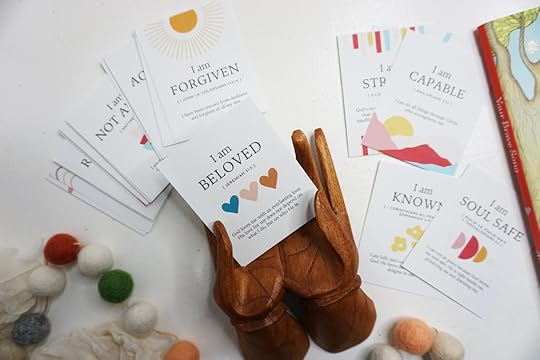

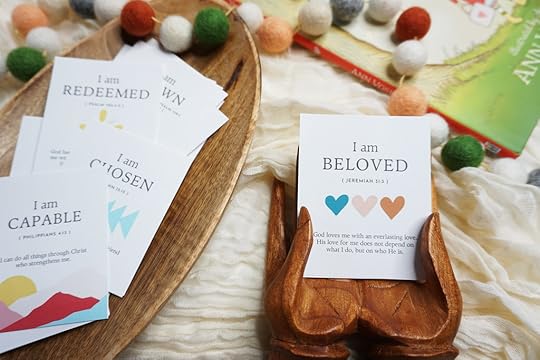
What would change about how you see your own identity, if you knew that when God sees you, He only looks on you with love?
Maybe after losing an organ and gently recovering, everything is stripped down to the question of existence that is at essence:
What would change about how you see your own identity, if you knew that when God sees you, He only looks on you with love?
As I can’t lift anything for 6 weeks, I thank the Farmer every morning when he winks and tells me that he loves me so much that he keeps feeding my sheep.
I laugh easy and wink back, and keep learning to rest in my truest, unwavering identity:
The beloved of God.
Because we all need To Keep Playing the Soundtrack of Who God Says We Truly Are: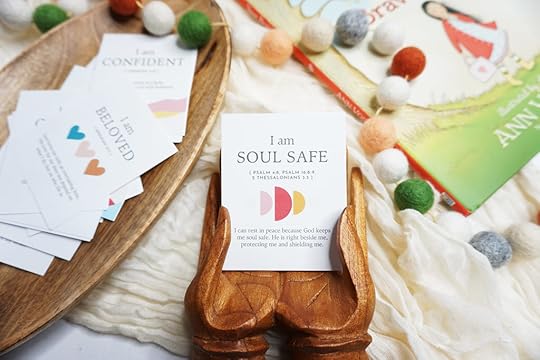 a Gift from me to you: A FREE set of “Identity in Christ” cards
a Gift from me to you: A FREE set of “Identity in Christ” cardsClick here and simply add your email to join our email community, AND you’ll immediately enter into an huge, amazing library of completely free resources— INCLUDING this FREE helpful pack of “Identity in Christ” cards to keep close each day. Print, put around the house, share with your people & be transformed!
Click here for the best valentine off all — all your people knowing their own belovedness! And Because All Our People Need to Know Their Truest Identity is Loved… Everyone Needs This: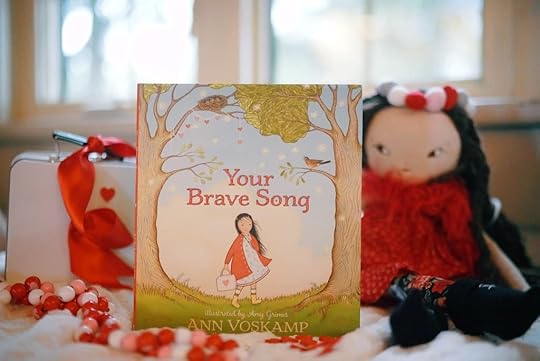
The refrain of this book has held Shiloh and I on some of our hardest days… because the simplest of truths, told through the sweetest of songs, can change the world… and us.
Which is exactly the refrain of our very first children’s book Your Brave Song!
We all need a sure song,
a courage song,
a song that assures that our our bravery doesn’t come from inside of us,
it comes from knowing you’re loved by the One who created love and is Love Himself.
Your Brave Song includes:
 A page to attach your child’s picture that makes this a uniquely personalized kids’ book
A page to attach your child’s picture that makes this a uniquely personalized kids’ book
 Exquisite hand painted, acrylic artwork by illustrator Amy Grimes
Exquisite hand painted, acrylic artwork by illustrator Amy Grimes
 Inspirational prose about finding your security and identity in Christ
Inspirational prose about finding your security and identity in Christ
 A rhyming song that kids can memorize easily so that they can return to its truth every day
A rhyming song that kids can memorize easily so that they can return to its truth every day
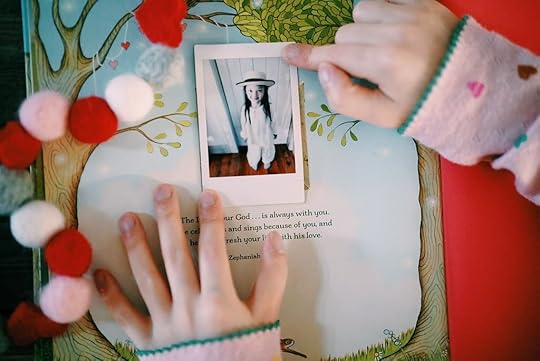
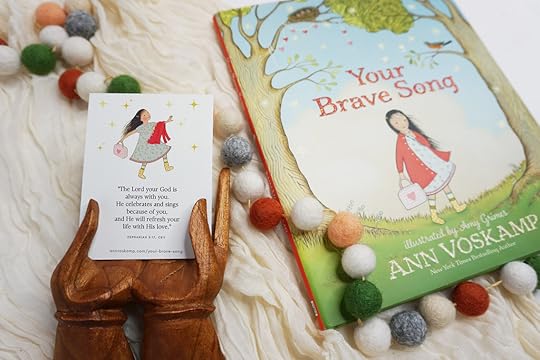 So Your People Know Their Truest Identity As Beloved: Order Your Brave Song Right now
So Your People Know Their Truest Identity As Beloved: Order Your Brave Song Right now
February 10, 2024
Only the Good Stuff: Multivitamins & Supplements For the Soul & Your Week Ahead [02.10.2024]
Happy, happy, happy weekend!
Do you sometimes feel at the end of your rope? Looking for a fresh start — or wishing for a do-over?
Let’s embrace something new together.
We’re adding a special touch to our weekly Multivitamins – think of them as Supplements for the Soul. In this space each week, we’ll delve into small yet impactful insights and mental models that embody perseverance, renewal, growth, and redemption. Together, we’ll learn and rejuvenate, preparing to meet the upcoming week with renewed hope and peace.
And that’s not all – we’re bringing you some real, down in the bones JOY to celebrate today! Links & stories this week 100% guaranteed to make you smile a mile wide & believe like crazy in a Good God redeeming everything — and that there’s love everywhere & for ((you))!
Serving up only the Good Stuff for you right here:
 Meg Loeks – Photographer
Meg Loeks – Photographer
 Meg Loeks – Photographer
Meg Loeks – Photographer
 Meg Loeks – Photographer
Meg Loeks – Photographeroh the joy of childlike wonder! come enjoy the simple beauty of red hearts and tiny hands ?
View this post on InstagramA post shared by Shields of Strength (@shieldsofstrength)
“I’ve always been your Valentine”
Mirrored Truths
In post-WWII Japan, a young car company – originally a weaving loom manufacturer – was on the brink of bankruptcy. The country was bombed out. They shaped car panels by beating sheet metal on wooden logs. The country was so destroyed, it was almost impossible to place a phone call, nevermind transact business.
At the same time, American car manufacturing ruled the world. General Motors and Ford retooled sprawling war machine factories to produce cars, resulting in behemoths exporting all over the world.
Things looked very grim for the little Japanese car company.
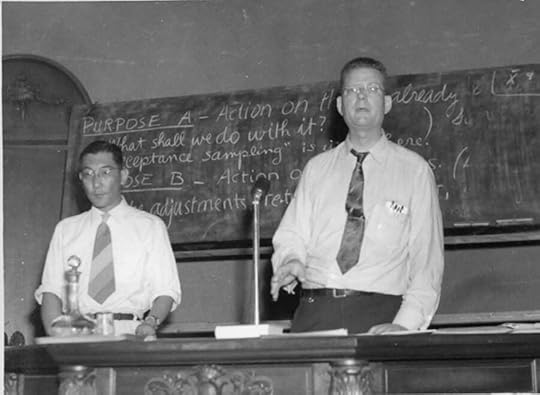 W. Edwards Deming gives his first seminar in Japan, 1950 – photo courtesy of The W. Edwards Deming Institute®The story isn’t over though.
W. Edwards Deming gives his first seminar in Japan, 1950 – photo courtesy of The W. Edwards Deming Institute®The story isn’t over though. A little known American professor of statistical processes, W. Edwards Deming, was brought to Japan in 1947 by General Douglas MacArthur to help plan the 1950 census.
While there, he became an itinerant preacher of quality manufacturing, giving a series of lectures to Japanese engineers and scientists. Deming often began his lectures with a little skit.
He stated there was a company in the business of producing and selling white beads. Customers wanted white beads, and red beads were a massive problem.
He would then“hire” audience members and have them follow a “manufacturing process.” The process started with a bucket of white and red beads which was stirred, and then a scoop that could hold 50 beads was scooped out at random.
The “employees” were strongly encouraged that they must get white beads – a high level of red beads would be reason for termination, and a high level of white beads would be cause for promotion.
The results were predictable in their randomness: employees had no control of the quantity of the “defective” red beads they scooped.
Corporate ParablesFrom this amusing corporate parable, Deming illustrated a handful of principles:
Recognizing the Big Problem
Most problems exist because of how things are set up from the start. Trying to fix errors with strict rules and accompanying rewards or punishments doesn’t really work.
It Starts with Leadership
The leader needs to lead the culture and process changes. Workers can’t make changes on their own; they need the person in charge to step up, start making changes, and see the change through, or else it all pointless.
Fixing the Big Picture
To really get better at making things and doing our jobs, we need to change the process and belief system, not just try harder as individuals.
Always Getting Better
Lasting change means getting everyone to always look for ways to do things better, which is an outflow of the change in culture and belief.
The ResultsDeming’s lectures on quality in manufacturing found fruitful soil, and a manufacturing revival swept Japan. The change was so great that ten years later, Deming was decorated by the Emperor of Japan, recognizing his impact on Japanese quality and productivity.
The little car company embraced Deming’s teachings wholeheartedly.
With the truth of Deming’s lectures part of its very DNA, that little car company would grow over the next 70 years to be the largest car company in the world, known particularly for its quality and reliability.
You probably know that once little car company as Toyota.
 Why should we care?
Why should we care?So given most of us aren’t in manufacturing, what does this mean for us?
Well, all that is good, beautiful, and true is a reflection of the One who is perfect, who is the source of beauty, and who is Truth.
This would not have surprised Deming, because a very little known fact about Deming, even amongst avid readers of his work, was that he was a lifelong devoted Christian and avid writer of liturgical hymns. Upon Deming’s death at age 93, the sermon at his funeral ended:
The reward of eternal life was more important to W. Edwards Deming
than the rewards of this world.
The glories of God’s heavenly kingdom
outshone for him the glitter of earthly success.
He never forgot who he was and Whose he is .
Truth MirroringSo how did the truth that Deming taught illustrate the Truth that he knew?
Recognizing Our Sin Nature
We must first understand that at the heart of our struggles lies our sin nature, inherited from the fall. No amount of human effort, rule-following, or behavioral modification can rectify this. It’s a spiritual problem that requires a spiritual solution.
Change Can Only Begin in Christ
True change begins with, and can only come through Christ. He is the leader who steps into our chaos, offering grace and redemption where any man-made righteousness fails. It’s through His sacrificial leadership that we find the path to genuine transformation.
Faith is the Only Fix – The Law Can’t Save Us
Our attempts to improve ourselves or trying to reward/punish our way to moral best practices cannot bring about real change. True renewal comes from faith in Christ—understanding that He fulfills the law on our behalf and reshapes us from the inside out.
Sanctification
The Christian life is marked by sanctification, an ongoing process of being made more like Christ. This isn’t merely self-improvement; it’s the result of the Holy Spirit’s work within us, prompting continuous growth and a deeper commitment to God’s ways.
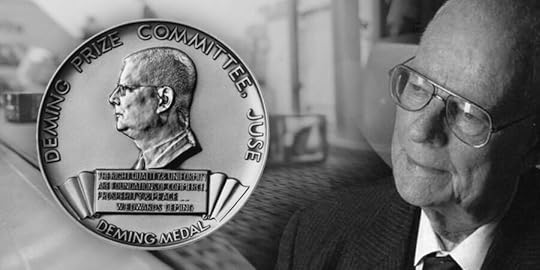 God-incidence Addendum
God-incidence AddendumIn a providential little co-incidence, or as Piper calls them, “God-incidence,” Deming had a colleague named Peter Scholtes. Peter Scholtes, who was also a business management consultant, also wrote hymns, and in 1968 Peter Scholtes, mirroring the rest of 1 Corinthians 13 and John 13:35 wrote the well known hymn “They’ll Know We Are Christians by Our Love.”
Deming would have agreed with Scholtes, and to put it all in perspective, “If I manufacture with the precision of Toyota, or with the technological prowess of Sony, but have not love, it profit me nothing.”
– written by Caleb Voskamp
View this post on InstagramA post shared by @mignonettetakespictures
Isn’t this just the sweetest?!
Round up of What’s HAppening aRound the FarmView this post on InstagramA post shared by Levi and Aurora's House of Dreams (@tanglewood.house)
In which Levi (mostly) finishes hauling garbage and starts working on vaulted ceilings…
View this post on InstagramA post shared by Aurora McGee (@auroramcgeeart)
And Aurora hides little nostalgic easter eggs in her painting…
View this post on InstagramA post shared by The Keeping Company (@the_keeping_company)
And Caleb writes about how Valentines falls on Ash Wednesday (only three times a century)!
Check in next week to Keep following AlongOn The Book Stack at The Farm
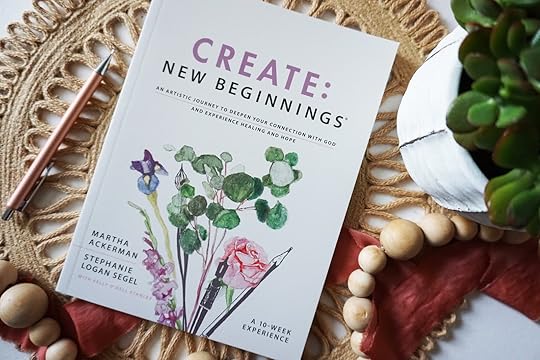
Read Martha Ackerman and Stephanie Logan Segel’s recent guest post:
What if the More you Shared, The Less it would Hurt?

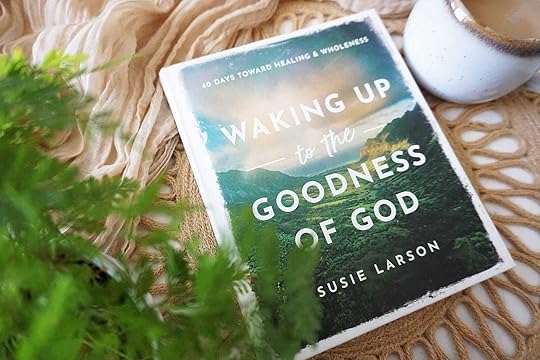
Read Susie Larson’s recent guest post:
What you’ve got to Figure out: What to Accept, What to Reject
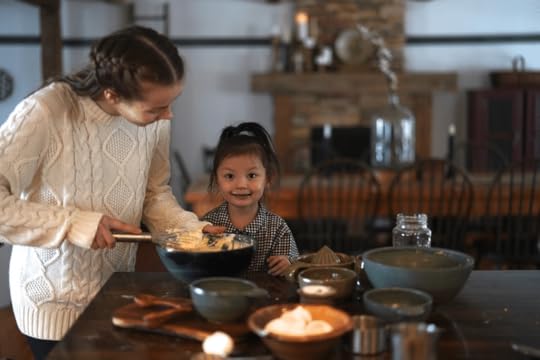
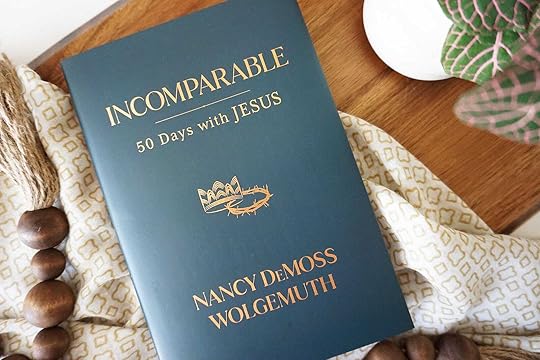
Read Nancy DeMoss Wolgemuth’s recent guest post:
When You’re Looking for Love: How the Cross of Christ Forms a Family
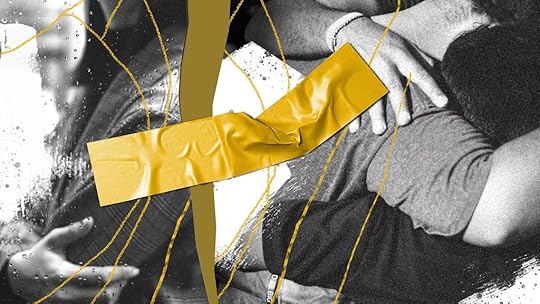
Why We Don’t Dump Friends Who Disagree
Affection can keep us together, even if ideas don’t.

(Three students win $700k by using AI
to decipher ancient scrolls
that were carbonized in Pompeii by Vesuvius)
View this post on InstagramA post shared by Reid Moon (@moonsrarebooks.official)
Is it easier to hide away in your heart when it’s this size?
But no less good!
What truly MattersIS to Love One another For Valentine’s day, my son Caleb is introducing this delightful Love One Another mug– the perfect gift for Valentines, anniversary, wedding gift, or keepsake for any occasion – The gentle curves of the mug fit comfortably in your hands, an invitation to relish the warmth it holds.
CLICK HERE: View the Whole Collection of Keeping Company Resources
Because we all need a Brave Song:
For Valentine’s day, my son Caleb is introducing this delightful Love One Another mug– the perfect gift for Valentines, anniversary, wedding gift, or keepsake for any occasion – The gentle curves of the mug fit comfortably in your hands, an invitation to relish the warmth it holds.
CLICK HERE: View the Whole Collection of Keeping Company Resources
Because we all need a Brave Song:

The simplest of truths, told through the sweetest of songs, can change the world.
Which is exactly the refrain of our very first children’s book Your Brave Song!
We all need a hope song,
a courage song,
a song that assures that our our bravery doesn’t come from inside of us,
it comes from knowing you’re loved by the One who created love and is Love Himself.
Your Brave Song includes:
 A page to attach your child’s picture that makes this a uniquely personalized kids’ book
A page to attach your child’s picture that makes this a uniquely personalized kids’ book
 Exquisite hand painted, acrylic artwork by illustrator Amy Grimes
Exquisite hand painted, acrylic artwork by illustrator Amy Grimes
 Inspirational prose about finding your security and identity in Christ
Inspirational prose about finding your security and identity in Christ
 A rhyming song that kids can memorize easily so that they can return to its truth every day
A rhyming song that kids can memorize easily so that they can return to its truth every day

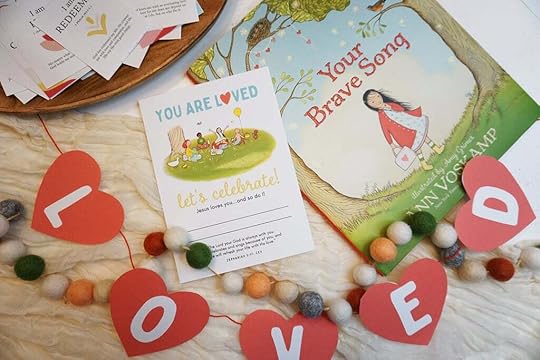
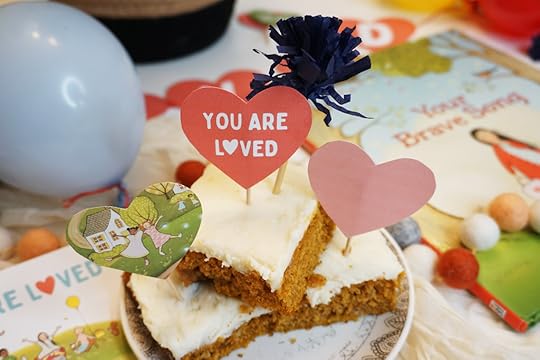
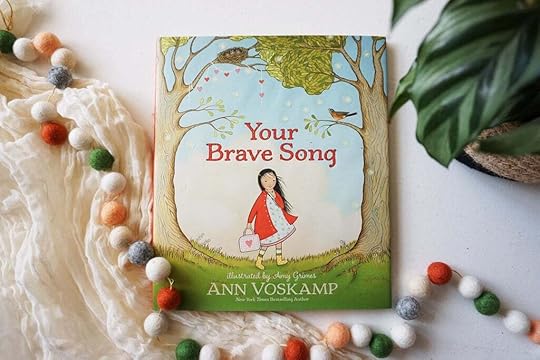 Have God’s Song ABOUT YOU
on Repeat in your heart.
Now 40% off on Amazon!
Have God’s Song ABOUT YOU
on Repeat in your heart.
Now 40% off on Amazon!
View this post on InstagramA post shared by The Moth (@mothstories)



View this post on InstagramA post shared by Marvel World
(@marvelworld.in)
Shift your perspective — and things are different than they seem.
View this post on InstagramA post shared by Sole Loco Boys (@sole_loco)
Grandma gotcha
View this post on InstagramA post shared by Ella | Honest motherhood | Hopefully make you laugh
(@crazynewmumma)
Oh my goodness 
View this post on InstagramA post shared by Mike Loughran (@fishlikemike)
Isn’t this amazing!
View this post on InstagramA post shared by Jean-Philippe Eyelom | Skating Instructor (@rollerbearding)
We really have to do this someday…
View this post on InstagramA post shared by Daily Dose Of Art
(@art_dailydose)
Just so creative!
View this post on InstagramA post shared by Viral Art
(@viral_art)
Amazing how these ideas took flight…
this one on repeat over here!
“I will carry you through your darkest nights
When you’re terrified
I will carry you
When the water’s rise
When your Hope runs dry
I will carry you“
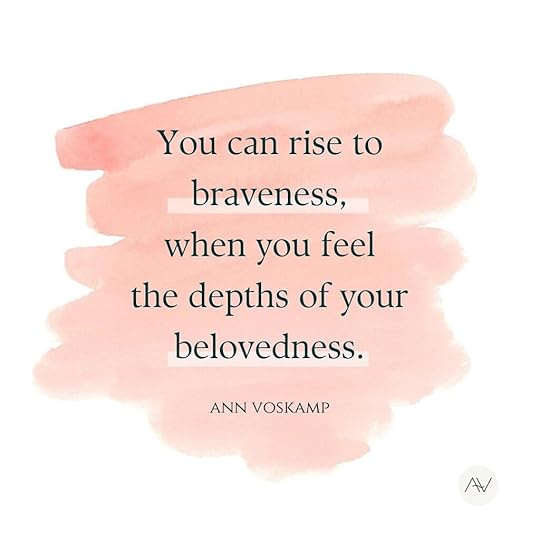
[from our Facebook community – join us?]
Frankly? Fear is one brute of a conniving monster,
and fear tends to defend itself with the roaring mask of anger….
or fear disguises itself with a bloated, sauntering pride ….
or fear goes around relentlessly shaming,
thinking if it piles on enough shame,
it can flatten you till it reshapes you into being someone better.
But really?
Shaming those anxious, fearful parts of your souls —
fails to actually calm those parts down.
And this is what actually, gently, helps:
Instead of trying to beat parts of you into being braver, calmer, better …
give those parts of you the beats of a greater love song to dance to.
Because this is one of the very deepest truths in the whole of the universe:
When Love sits down
with fear —
so many things
calm down.
When Love puts its arm around fear — so many fears melt.
Only Love Himself is large enough to enfold fear.
What refreshes your life —is the fresh wind of His love.
When you know Love Himself holds you —
courage takes hold of you and you rise to meet the moment.
You can rise to braveness,
when you feel the depths of your belovedness.
That’s all for this weekend, friends.
Go slow. Be God-struck. Grant grace. Live Truth.
Give Thanks. Love well. Re – joy, re- joy, ‘re- joys’ again
Share Whatever Is Good.
February 9, 2024
That Dream You Once Had & Held Tight? Here’s How To Grieve The Death Of It
Grief is something that cannot be quantified or qualified. It surges and ebbs unexpectedly, and grows over the losses we experience in our lives—loss of loved ones, innocence, health, and dreams. You don’t have to bury your grief, and you don’t have to pretend you’re over your loss. Let Rachel Marie Kang’s words be a balm for your brokenness, giving space for sorrow and welcoming you to grieve the things that always mattered—and always will. It is a joy to welcome Rachel to the farm’s table…
Guest Post by Rachel Marie Kang
I take the bus down to the city, get off at Port Authority near Columbus Circle, and get myself to the Hearst Tower, off 57th Street and Eighth Avenue in Midtown Manhattan.
I sit down for my interview with Seventeen magazine, talk about how I love to write and how I’m interning with a publisher right now and how I can catch on quickly. I talk about my love of the magazine and all the many reasons for which I’d be the perfect person to intern with their team.
I see my future spanning before me: a hotshot editor, living and working in the city of my dreams, the city where both of my parents have worked and found their identity and purpose. I lose myself in thought, find myself in the myriad of made-up moments playing out before me. I can and will make it happen, because the dream was always to “make it”—to get a job, get rich, and survive the city . . . subway system and all.
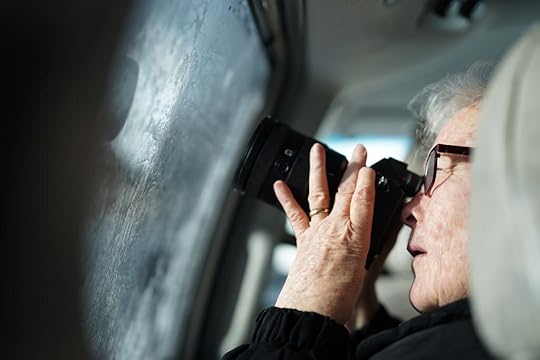

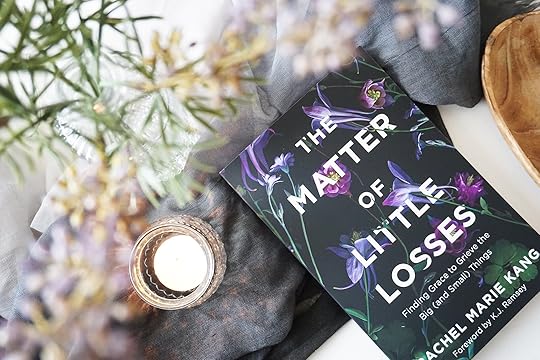


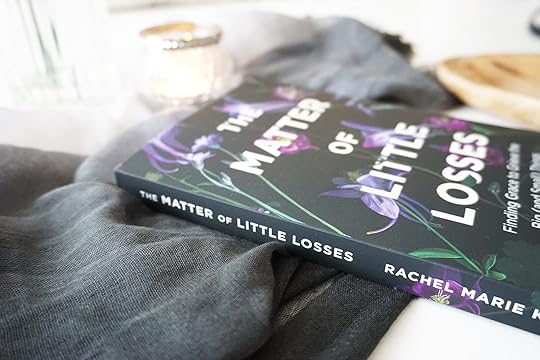

“We lose dreams and we lay them down.“
Then June comes like an unsuspected thief. I’ve only been home for two weeks or so when my older brother’s caregiver of four years quits. Hands in her letter, simply says that it’s time. My chest tightens, and questions come spilling in. What will this mean for my mother? What will this mean for my older brother who lives with profound special needs? And, more importantly, What will this mean for me?
I feel my heart spin and turn within me.
The fast-slow breaths of my chest rising and falling. I consider how this might be my life, my dreams on the line . . . but I also know how the scenario will pan out for my family. Late-night searching online for caregivers. The interviews and questions. The face scanning and the background checks. Like blind speed dating—all the effort poured into seeing who would be safe enough to take care of my older brother.
“I’ll do it,” I utter. My brain barely has the chance to unfold and recognize what I’ve just said. “I can take care of him. I can be his caregiver.” Then I watch my dream wash down the gutter, like strong currents of sidewalk rain in New York City come rushing in, sinking it fast and down and hard.
“…we need space to grieve these lost dreams—every big one and little one and those in between.“
Dreams die, fold up, and altogether fall out of the sky. They are ripped right from our rib cage, taken from the hollow of our hand. We lose dreams and we lay them down. For family, because of finances, for the sake of our future—for all kinds of different reasons.
So how do we look out over the expanse of our life and admit the dreams that have died? How do we unearth purpose when the path before us is painted over with pain? How do we hold onto our hopes when the kids fall ill, when finances fail, when bodies betray, when jobs derail. More than sympathetic sayings, we need space to grieve these lost dreams—every big one and little one and those in between.
We need a truth to tell ourselves when we’re lost in the fog, hope for the hours when purpose evades and the point of life eludes us. Perhaps, then, hope is held in this one thing—the fact that a dream is really the dwelling place of a deep desire.


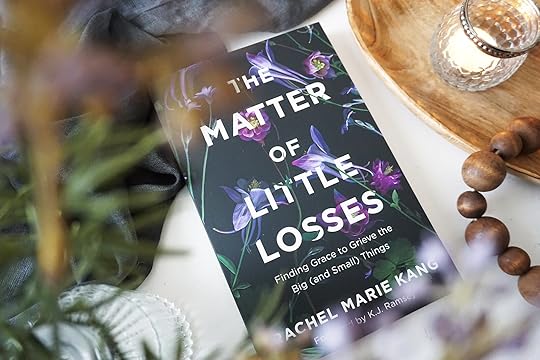

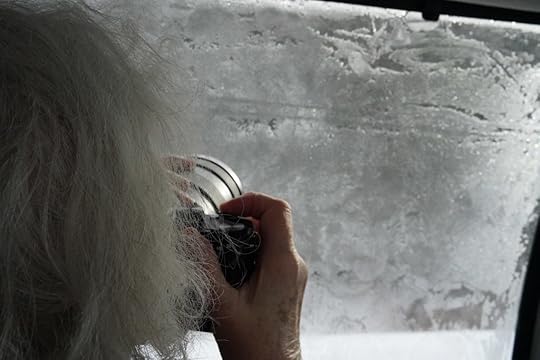
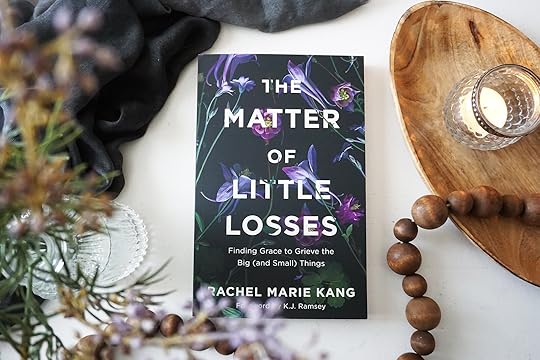

In place of dwelling on dead dreams, we can look to the desires that lie deep beneath them. Perhaps the dream was to have a big house, but the deep-down desire was to create a place to gather people. Even if the dream never comes to pass, still you can choose to live from and for your desire to gather people . . . with what you have and right where you are.
“In place of dwelling on dead dreams, we can look to the desires that lie deep beneath them.”
After college, instead of chasing my dream to work in publishing, I chose to go back home and take care of my older brother who lives with profound special needs. From time to time, I still ache from the loss of this dream . . . but then I remember my brother’ smile. I hear his laughter, and it tells me his brain knows freedom even though his caged body doesn’t . . . and that brightens me up more than any light reflecting off city skyscrapers ever could.
We might not ever forget the dreams we once held; and we might not always find ways to forge them into fruition. But we can grieve what we gave up.
We can let tears fall in the moments when we’re reminded.
And, despite the detours and dreams dead or deferred, we can let our deep-down desires—to serve others and to serve the Lord—be what leads us on.
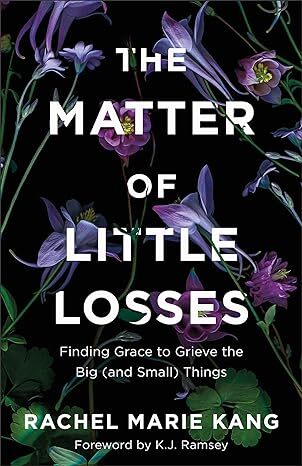
RACHEL MARIE KANG is a New York native, born and raised just outside New York City. A mixed woman of African American, Native American (Ramapough Lenape Nation), Irish, and Dutch descent, she holds a degree in English with Creative Writing.
She is founder of The Fallow House and her writing has been featured in Christianity Today, Ekstasis magazine, Proverbs 31 Ministries, She Reads Truth, and (in)courage.
Rachel is the author of Let There Be Art and The Matter of Little Losses. Connect with her at rachelmariekang.com and on Instagram at @rachelmariekang.
{ Our humble thanks to Revell for their partnership in today’s devotional.}
February 5, 2024
When You’re Looking for Love: How the Cross of Christ Forms a Family
Few writers can communicate the wonder of God’s Word as deeply as Nancy DeMoss Wolgemuth. Her love for Scripture is evident—and infectious. Nancy’s new devotional book, Incomparable: 50 Days with Jesus, is an invitation to open our Bibles and be reminded that there is no one else like Jesus. He is quite simply . . . Incomparable. What a joy to welcome Nancy to the farm’s table…
Guest Post by Nancy DeMoss Wolgemuth
Clustered around the cross that dark day, in stark contrast to the angry, restless mob, stood a handful of onlookers whose hearts were broken and whose eyes were fixed on the Man suspended in the middle, dying between two convicted criminals.
“The one factor that held this group together so closely was the Man whose blood now dripped from His hands and feet and side, seeping down the cross and staining the ground beneath them. “
Mary, the mother of Jesus, was there. Her sister was present too. Most commentators, piecing together the various Gospel accounts, believe this woman’s name was Salome, the wife of Zebedee and the mother of two of Christ’s disciples, James and John.
Scripture refers to two other women present that day, each named Mary as well. Mary, the wife of Clopas, was perhaps the mother of another apostle. And then there was Mary Magdalene, whom Jesus had delivered from a tangle of “seven demons” (Luke 8:2) and who had become one of His faithful, long-term followers. Rounding out the group was John—“the disciple [Jesus] loved” (John 19:26)—who at first had fled in fear with the other members of Christ’s inner circle but had dared to return and stand vigil with the others.
So Jesus had family around Him—but more than family. For even those not related by blood were connected by something more powerful, more magnetic, than mere biology and bloodlines.
The one factor that held this group together so closely was the Man whose blood now dripped from His hands and feet and side, seeping down the cross and staining the ground beneath them.


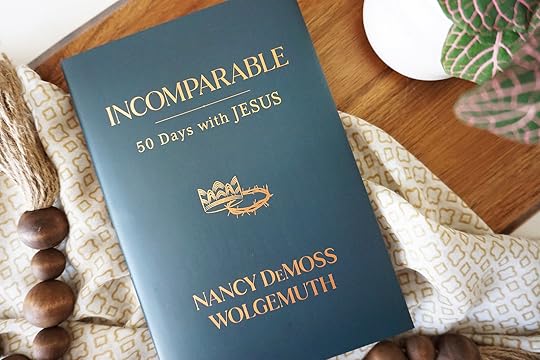
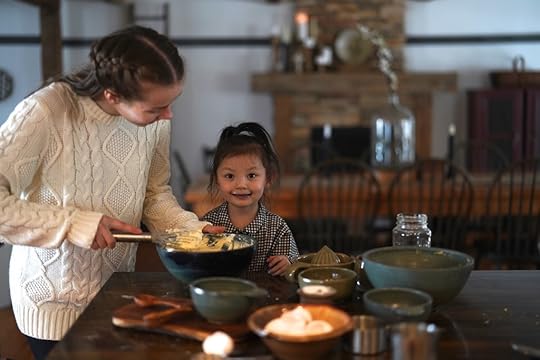

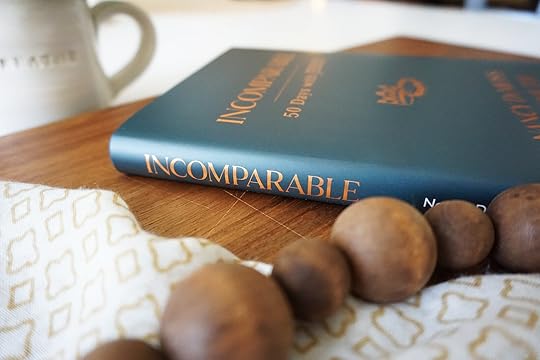
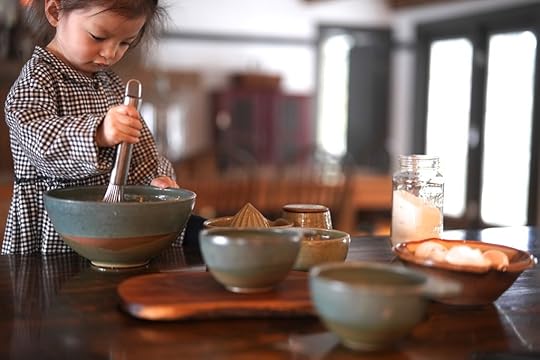
Their love, faith, and belief in Jesus was what made these witnesses truly one.
Truly family.
“…our most valuable kinships in life are forged at the cross, formed around our mutual relationship with Jesus, and are literally built to last forever.“
This was the united body—the shared family of believers—that Jesus was giving His life to create. This new family created at the cross does not exclude the kindred attachments of birth families or give us leave to ignore their needs. Rather, it multiplies and transforms our natural family relationships, broadening them into a brotherhood and sisterhood that keeps anyone from being abandoned or neglected, from being orphaned or widowed, bereft or invisible.
Distance can intrude, death can intervene, selfish choices can interrupt, hard circumstances can inconvenience. But wherever those who belong to Jesus might be, touched by any situation in life, there are other members of His extended family who can embrace them, minister to their needs, and provide the companionship of a common heartbeat, passion, and purpose.
So when Jesus lowered His eyes, catching sight of the familiar faces staring up at Him, family was the lens through which He viewed their distraught expressions. Then He made the connection explicit:
To His mother: “Woman, here is your son.”
To John, His beloved disciple: “Here is your mother.”
“Woman.” To our modern ears, this way of addressing His mother might sound cold. But Jesus certainly communicated no disrespect or lack of love to the woman who had given birth to Him. Perhaps He avoided addressing her with the more familiar “Mother” to keep us from being tempted to exalt Mary beyond what was appropriate. But the less sentimental language also hints at new family lines He was drawing—and He was drawing all His people inside those lines.
“We are together in Him. We are one. We are family. “
Jesus was deliberately establishing in their minds (and leaving clear instructions for us as well) that a new set of primary relationships, stronger than blood ties, now existed in His kingdom. Within the interconnectedness of His spiritual family, each of us—whoever we are—has the most in common with those people whose faith in Christ intersects our own.
In other words, our most valuable kinships in life are forged at the cross, formed around our mutual relationship with Jesus, and are literally built to last forever.
The responsibilities we rightly owe to our physical families in love and obedience to Christ extend beyond these people as well. We as believers have an even wider call to care for and minister to our brothers and sisters in Christ and to live with the grateful confidence that they, too, will care for us.
We are together in Him. We are one. We are family.
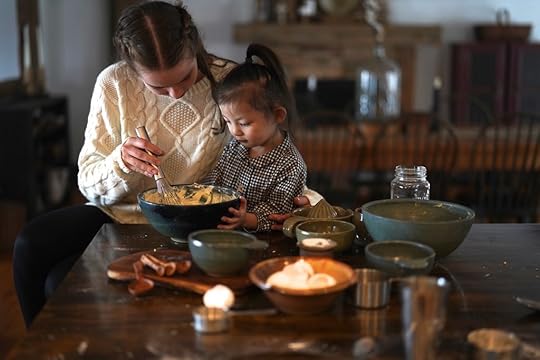


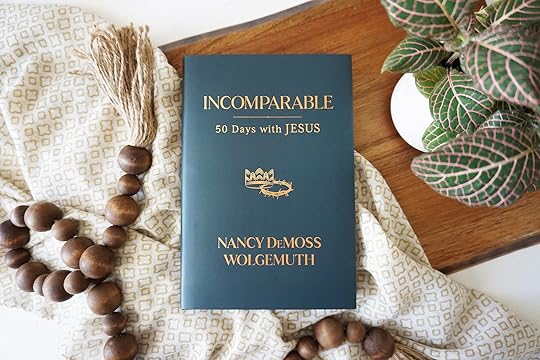
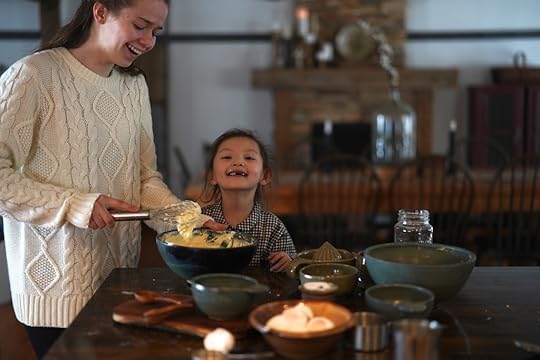


So even though John was not Mary’s naturally born son, he picked up on Jesus’ dying, divine directive. “From that hour,” the gospel retorts, “the disciple took her into his home” (John 19:27).
“We have been gathered and adopted into a worldwide, multigenerational family that only the power and blood of Christ could create. “
How grateful I am for spiritual brothers and sisters, mothers and fathers, families, who have taken me under their wings and into their hearts and homes over the years, particularly in the decades I spent as a single woman, providing friendship, encouragement, practical counsel, and assistance. And what a joy it has been to open my heart and home to others, to care for them, assure them of His love, and come alongside them in times of discouragement or need.
Christ calls us to be His family here on earth. And it all came—it all comes—from the thoughtful care and devotion Christ initiated in the midst of the pain and peril of the cross. The family bond that He desires for us and desires the world to see in us is too big and broad to be confined to the handful of people we share a name and some DNA with. We have been gathered and adopted into a worldwide, multigenerational family that only the power and blood of Christ could create.
Our job is to love our brothers and sisters in Christ.
And? Our privilege is to be loved by them.
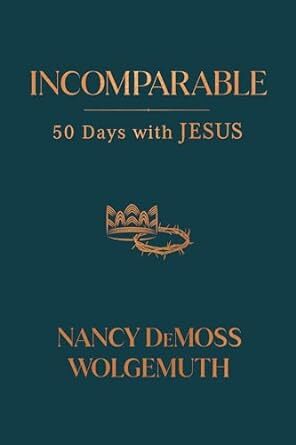
Nancy DeMoss Wolgemuth has touched the lives of millions of women through Revive Our Hearts and the True Woman movement, calling them to heart revival and biblical womanhood. Her love for Christ and His Word is infectious, and permeates her online outreaches, conference messages, books, and two nationally syndicated radio programs heard each day—Revive Our Hearts and Seeking Him.
She has authored twenty-two books, including Lies Women Believe and the Truth That Sets Them Free, Seeking Him (coauthored), Adorned: Living Out the Beauty of the Gospel Together, and You Can Trust God to Write Your Story (coauthored with her husband). Her books have sold more than five million copies and are reaching the hearts of women around the world. Nancy and her husband, Robert, live in Michigan. Discover more from Nancy at ReviveOurHearts.com.
Walk through a fifty-day journey with Jesus and discover that He is everything you will ever need, in Nancy’s new book, Incomparable.
{Our humble thanks to Moody Publishers for their partnership in today’s devotional.}
February 2, 2024
What you’ve got to Figure out: What to Accept, What to Reject
I’ve known Susie for years and I love and esteem her to the moon and back…. We first met when I was a guest on her radio show and I was deeply struck by the rare, deep well of wisdom she is. We talked about the thousands of ways God has shown us His goodness and I truly didn’t want the conversation to end. Susie and I have shared the platform at speaking events, and we’ve enjoyed moments of prayer backstage and we’ve loved hear other through sickness and what this woman writes, I read because Susie Larson is an uncommon sister in Christ who treasures His nearness. It is a complete joy to welcome Susie to the farm’s table…
Guest Post by Susie Larson
I sat across the table from my friend, and we enjoyed an easy banter. Suddenly the conversation shifted to a painful relationship issue she was walking through. Her brow furrowed, and her jaw muscles flexed.
Just then, our server interrupted us to refill our water glasses. I watched my friend as she stared out the window. Her countenance darkened, and the light went out of her eyes. Her fists clenched, and the previous sense of hopeful expectancy vanished.


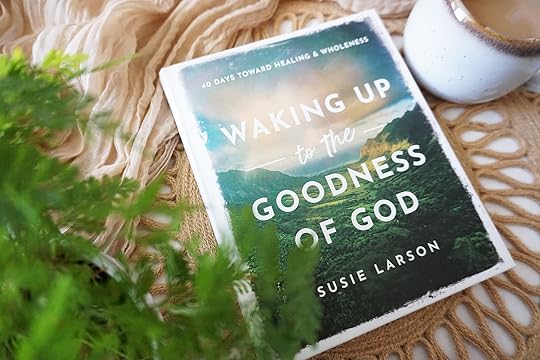
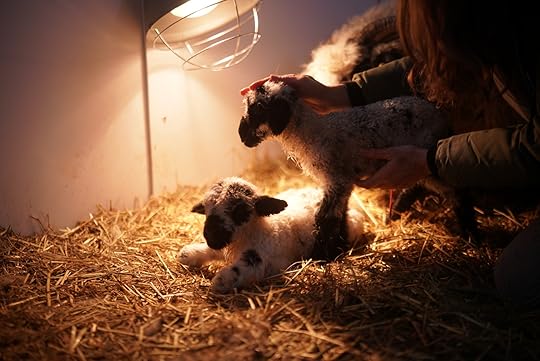

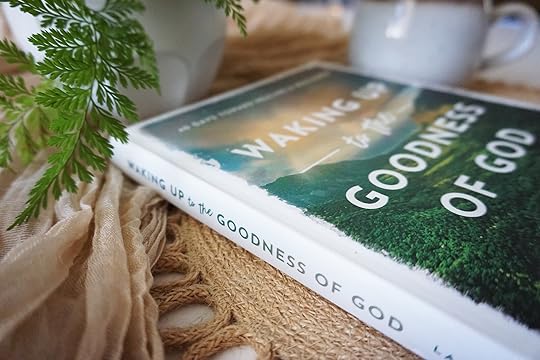
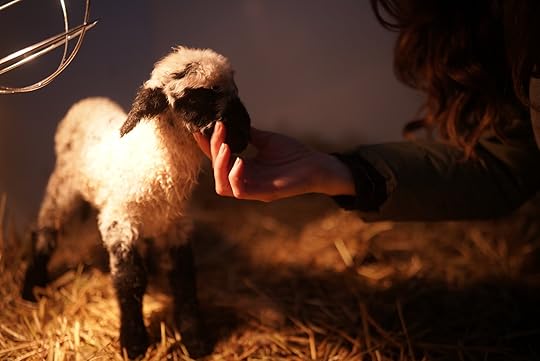

Once the server walked away, I touched my friend’s arm. She stared out the window and didn’t flinch.
“Hey,” I said. She looked back at me. I continued, “Tell me where your thoughts went just now.” She shook her head and said, “What? No. I’m fine. It’s nothing.” I leaned forward and said, “It’s not nothing. Tell me what just happened in your heart and mind. Where did your thoughts go?”
She relaxed her hands, exhaled, and confessed that she’d spiraled into the ditch of anger, despair, and hopelessness. Together, we disentangled her thoughts from the lies she believed and helped her grab hold of the truths she needed. Then we prayed and asked our Father to intervene. My friend is a woman of God. And by the time we parted that day, her joy had returned, and her faith was fully engaged.
How do we discern when we’ve wandered off track? It’s simple. Do our thoughts bring life and peace (Romans 8:6)? Or not? It’s good to ask ourselves these questions each day, and sometimes several times a day:
What am I accepting, and what am I rejecting in my heart and mind? And how are these choices affecting my perspective and faith at this moment?
“Diligence calls us to keep the right things in and the wrong things out. Far too often, we’re lackadaisical regarding the issues of our hearts. We allow insecurity to linger unchallenged. We open the door to fear. “
Scripture tells us to guard our hearts with the diligence of a prison guard on duty, fully alert and completely aware of his responsibilities (Proverbs 4:23). Imagine the boundaries of your heart. Only truth belongs there—God’s truth that heals, reveals, guards, and guides. The lies will continually poke at you, trying to find an opening or a vulnerability. The lies will rob you of all God has for you.
Diligence calls us to keep the right things in and the wrong things out. Far too often, we’re lackadaisical regarding the issues of our hearts. We allow insecurity to linger unchallenged. We open the door to fear. We continually rehearse thoughts that weaken us. We think nothing of holding grudges and making careless judgments. We have no idea how these poisonous roots choke the life right out of us. God forgive us.
Yet God, in His kindness, teaches us how to tend to our hearts in the middle of hardship and heartbreak.
Though it’s tougher to stay hopeful amid suffering and expectant amid hardship, it’s what our souls need.
That’s where spiritual heroes are made.
After God set the Israelites free from slavery in Egypt, they prolonged their journey through the wilderness—so much that the first generation never made it to their promised land. They coddled their fears more than they clung to the promises of God. Some would say that though their fears at first were understandable, those same fears eventually made them rebellious. They refused to believe God.
The people refused to enter the pleasant land,
For the wouldn’t believe His promise to care for them.
Instead, they grumbled in their tents and refused to obey the Lord.
Psalm 106:24-25 NLT (emphasis mine)
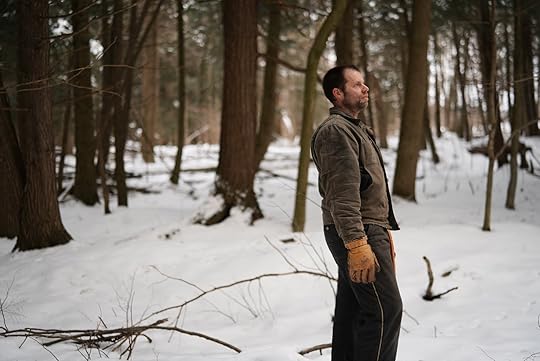
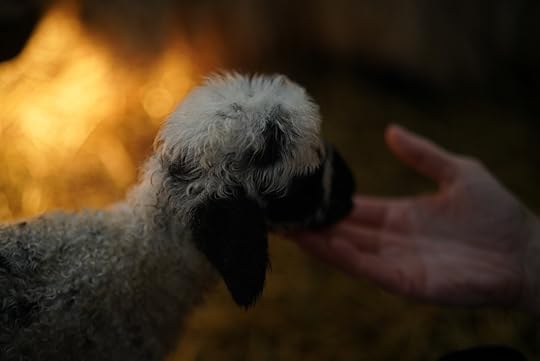
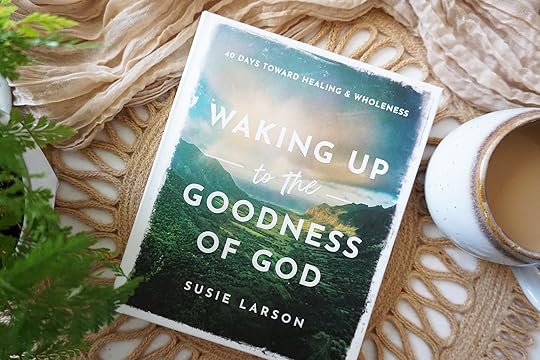

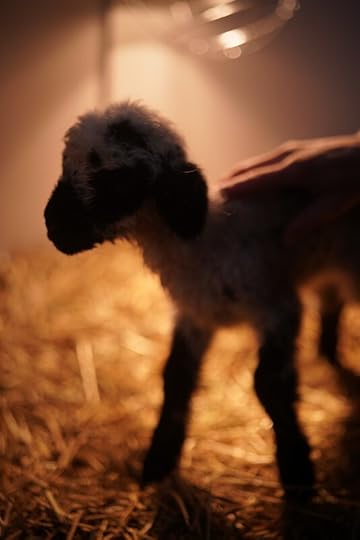

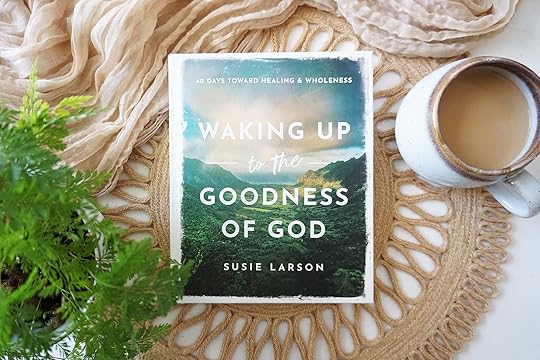
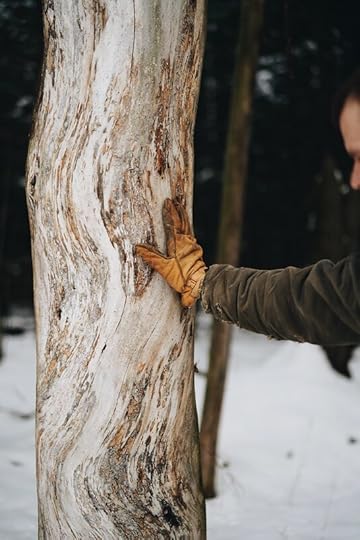
God has a next place of promise for you. He’s committed to love and care for you. He calls you out of the smallness of your circumstances (like the Israelites grumbling in their tents) to behold the vast landscape of hope and life He’s prepared for you. God has also given you a free will—the right to decide which attitudes you’ll embrace and what perspective you choose to live with. All of these choices have consequences.
God has a next place of promise for you. He’s committed to love and care for you.
You have the right to accept one thing and reject another.
May you become a skillful and godly warrior. May you be quick to discern and reject the Enemy’s lies. And may you be quick to accept and embrace God’s truth that will set you free. May you become mighty in God.
Faith Declaration:
Because of Jesus and in His Name,
I reject rejection!
I accept acceptance!
I am loved, called, and chosen.
I’m highly discerning, and I walk in freedom.
Father in Heaven,
Holy is Your name. May Your kingdom come, and Your will be done, on earth and in my heart as it is in heaven. Lord, show, me my heart! I’ve put up with too much from the Enemy of my soul, but no more! I’m done listening to his lies. I’m fine-tuning my ears to You, Lord. Speak what’s true. Breathe fresh life into my soul. Heal my heart and make me whole. Give me feisty faith so I can walk in freedom.
Amen.
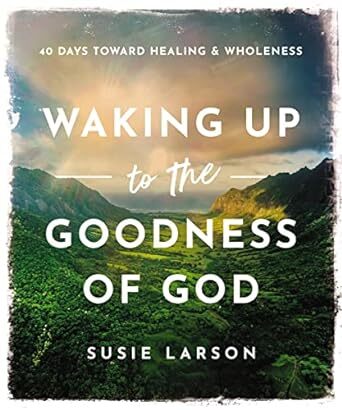
I about squealed when I held this book in hand!
Susie Larson is a popular radio talk show host, national speaker, and bestselling author. The author of twenty-two books, Susie is also a veteran in the fitness field and has twice been voted a top-ten finalist for the John C. Maxwell Transformational Leadership Award. Susie and her husband live near Minneapolis with their three sons, three daughters-in-law, and three grandchildren. Susie’s passion is to see people everywhere awakened to the value of their soul, the depth of God’s love, and the height of their calling in Christ Jesus.
Susie’s 40-day devotional, Waking up to the Goodness of God helps readers retrain their hearts and minds to move from bracing for impact to a posture of anticipating God’s goodness. When we learn to truly know God for who He is, our hearts will learn to better trust Him in all seasons.
{ Our humble thanks to Thomas Nelson for their partnership in today’s devotional.}
Ann Voskamp's Blog
- Ann Voskamp's profile
- 1368 followers



